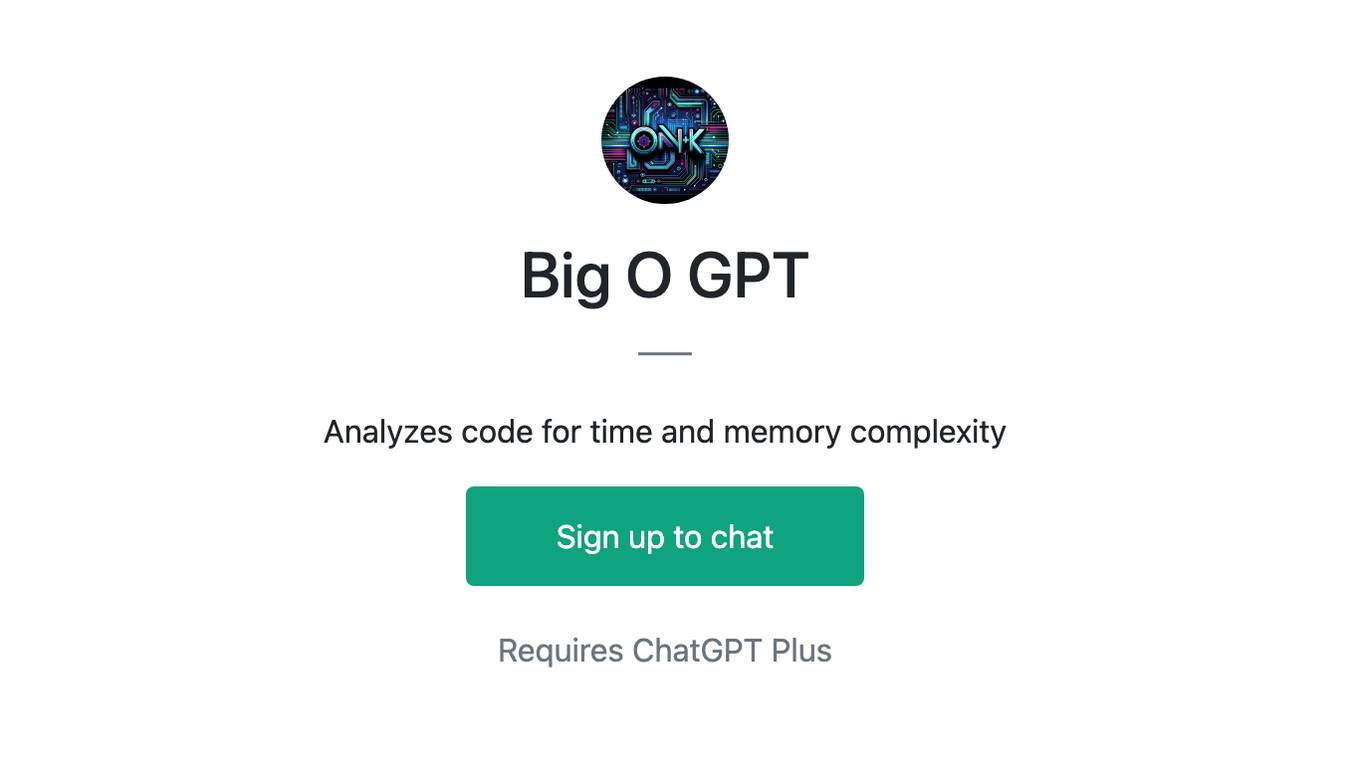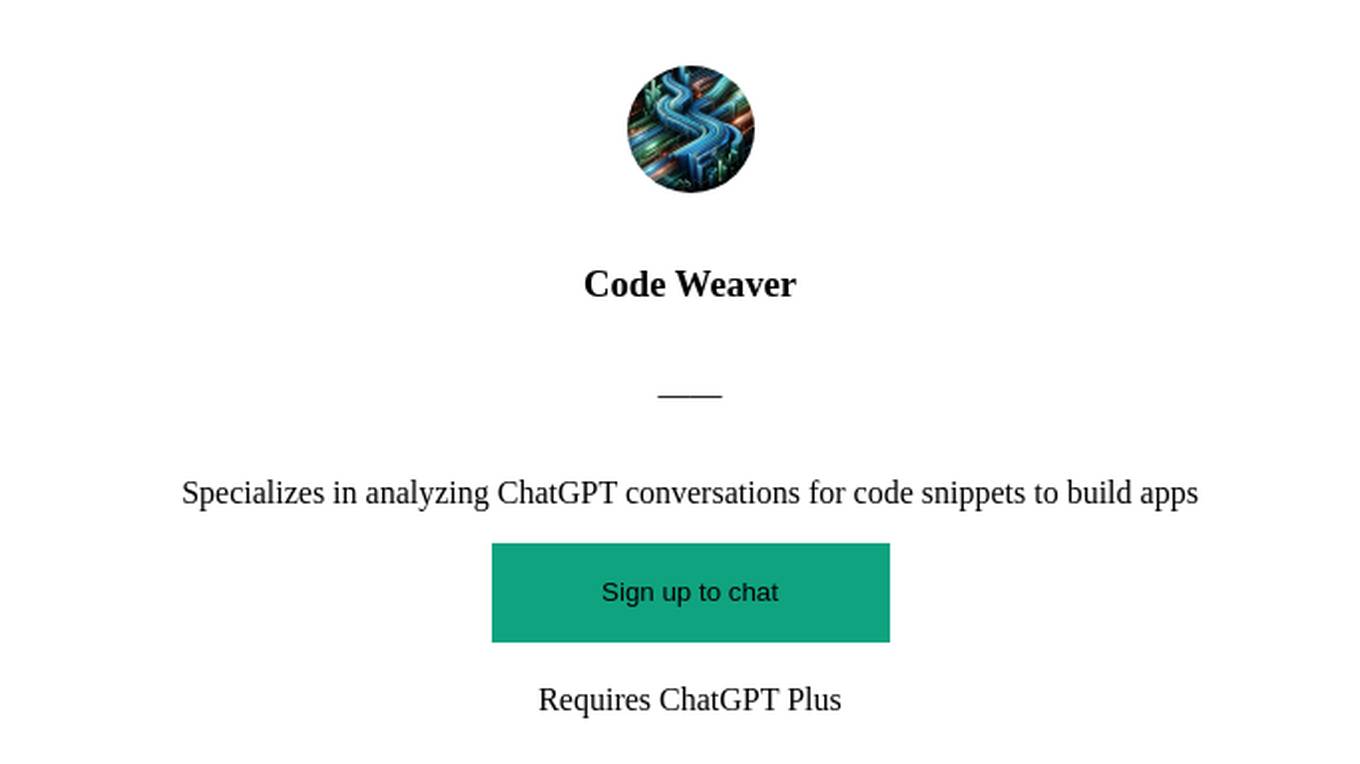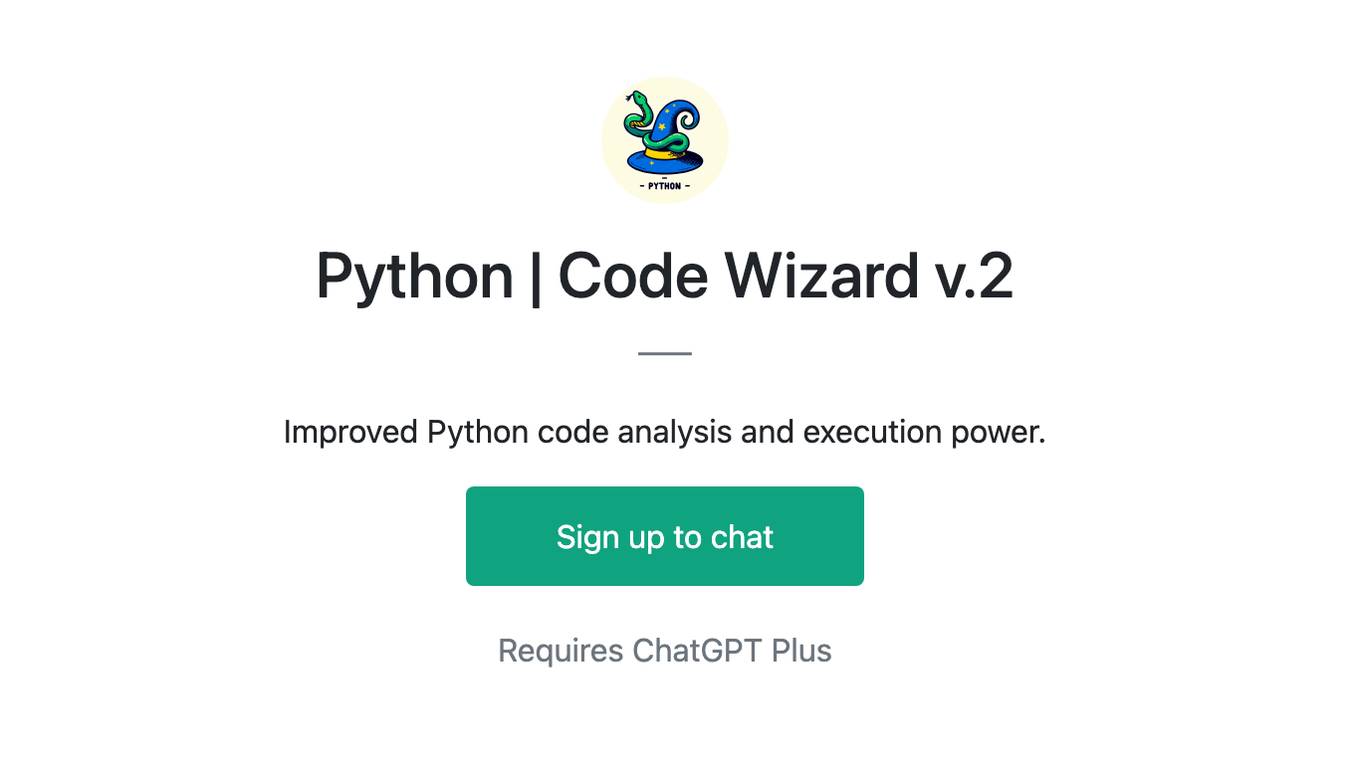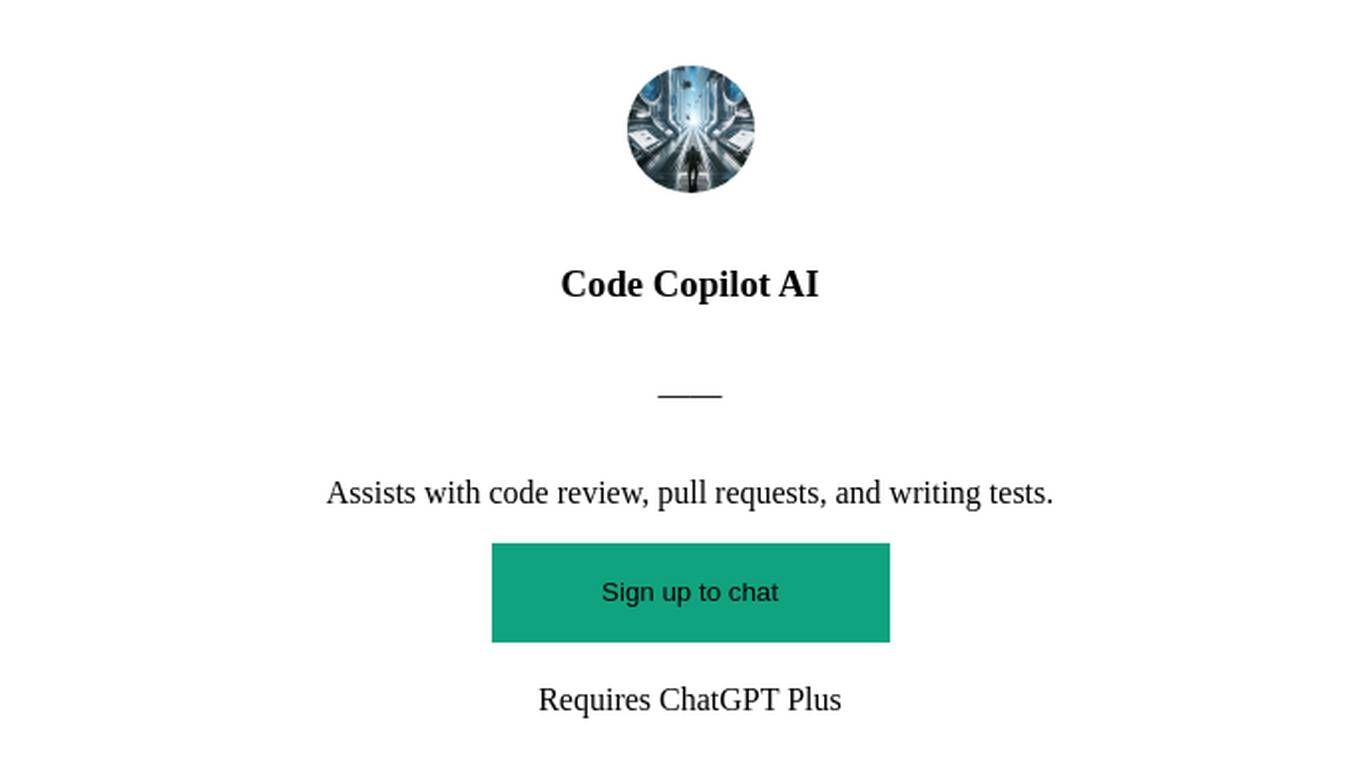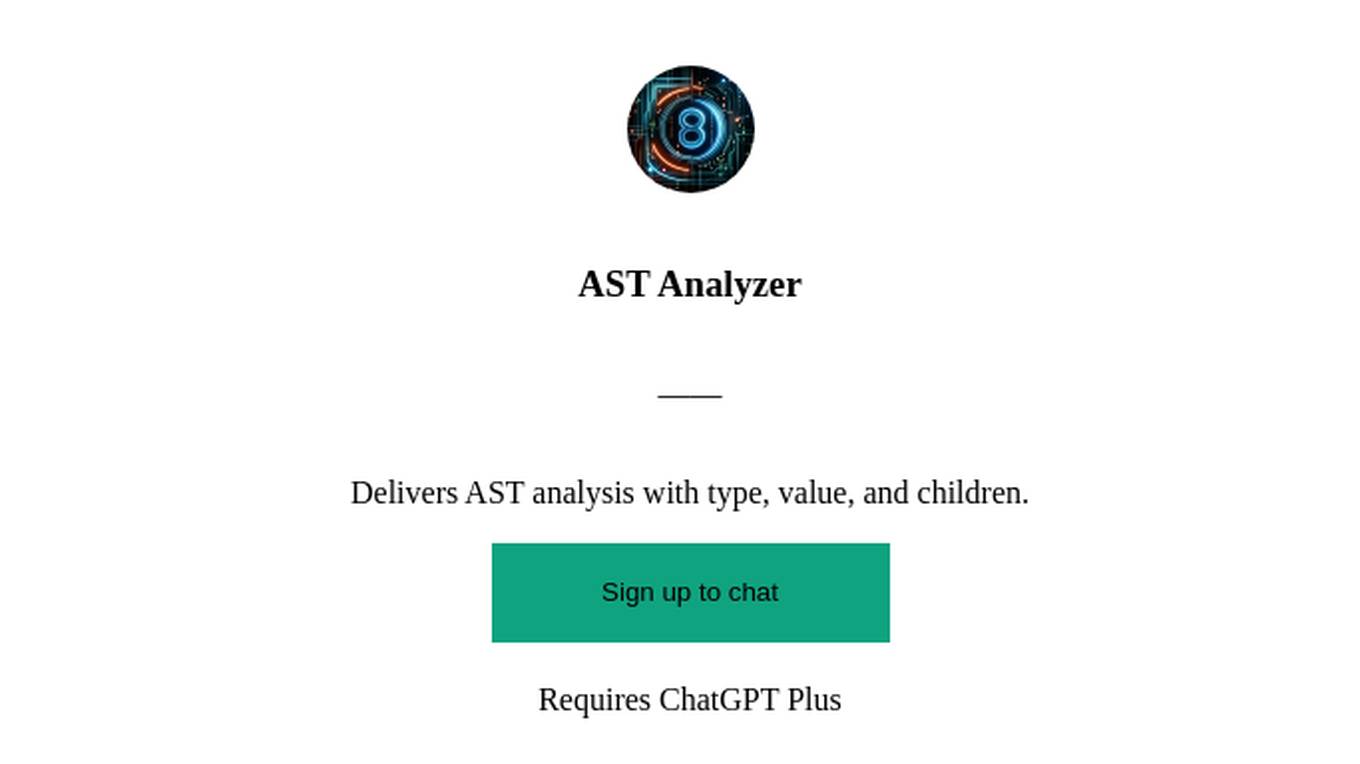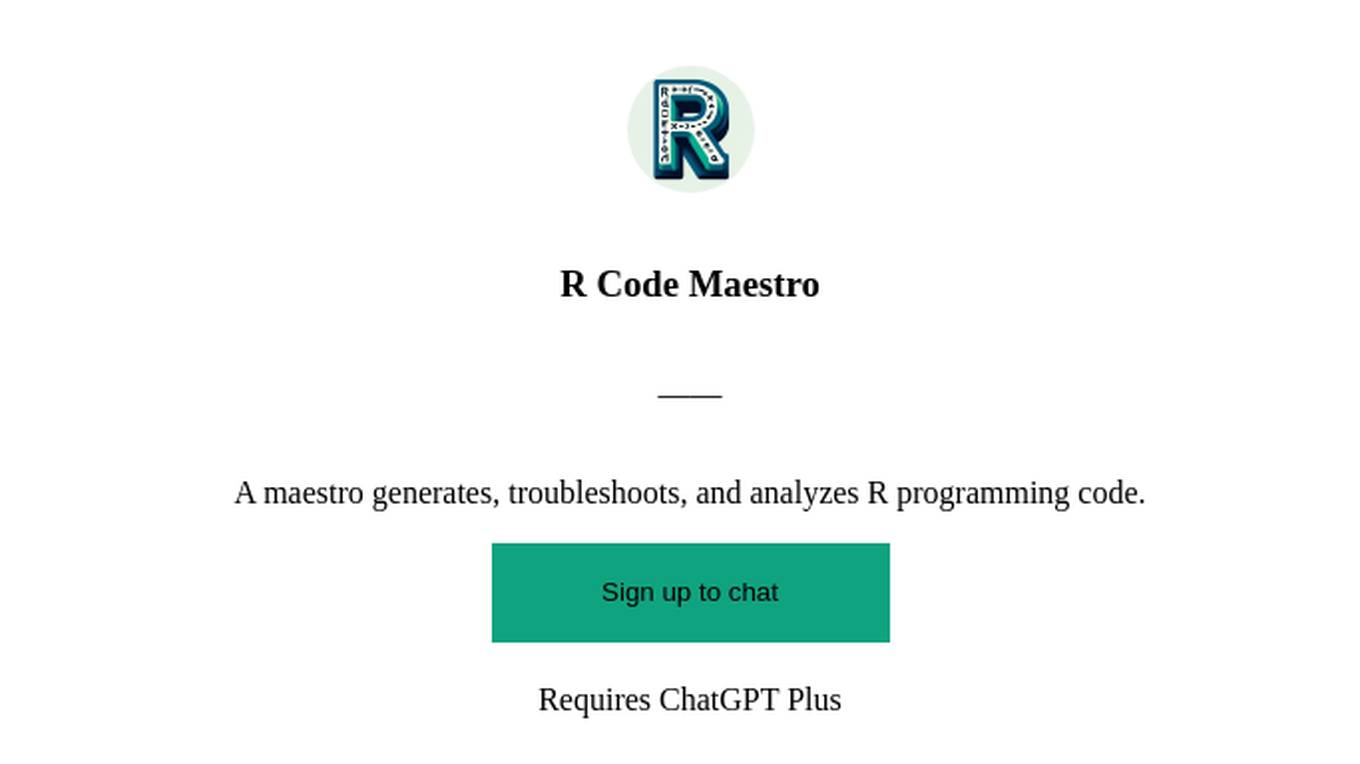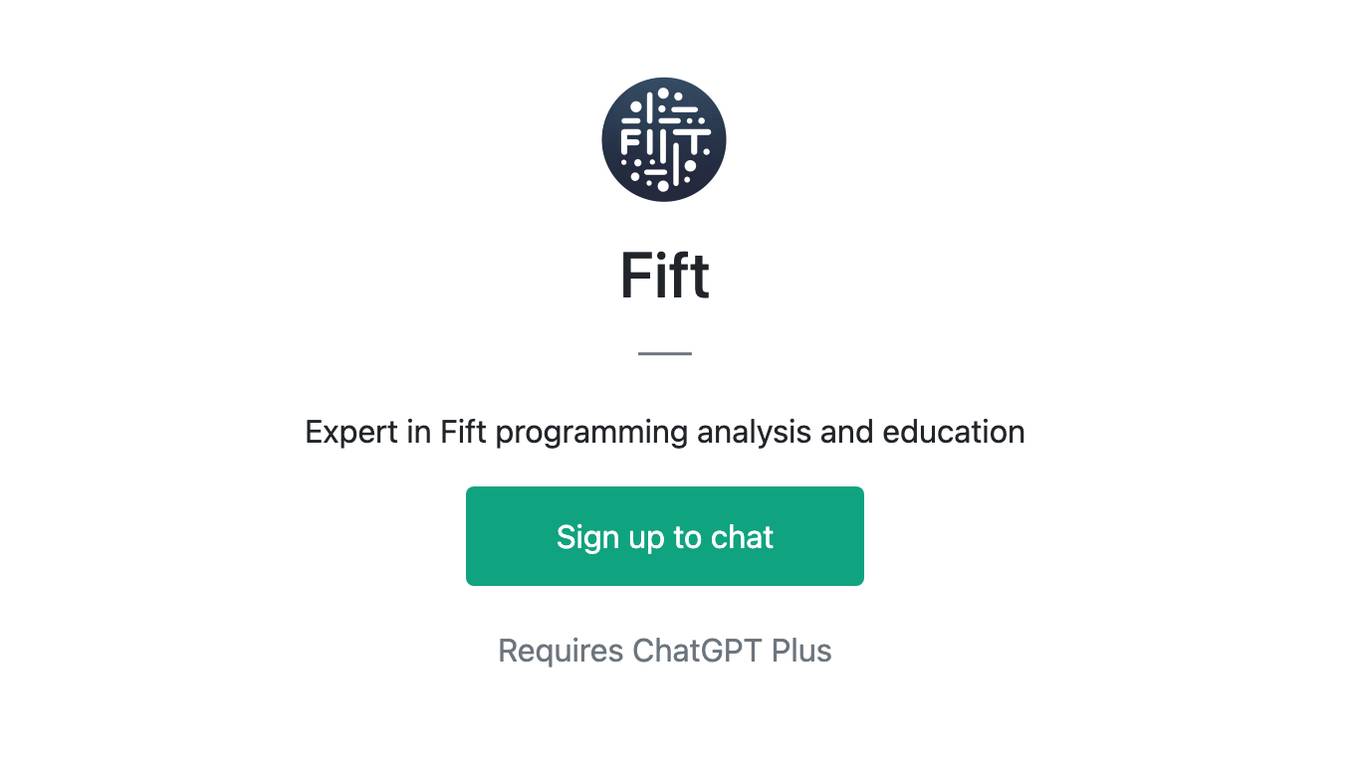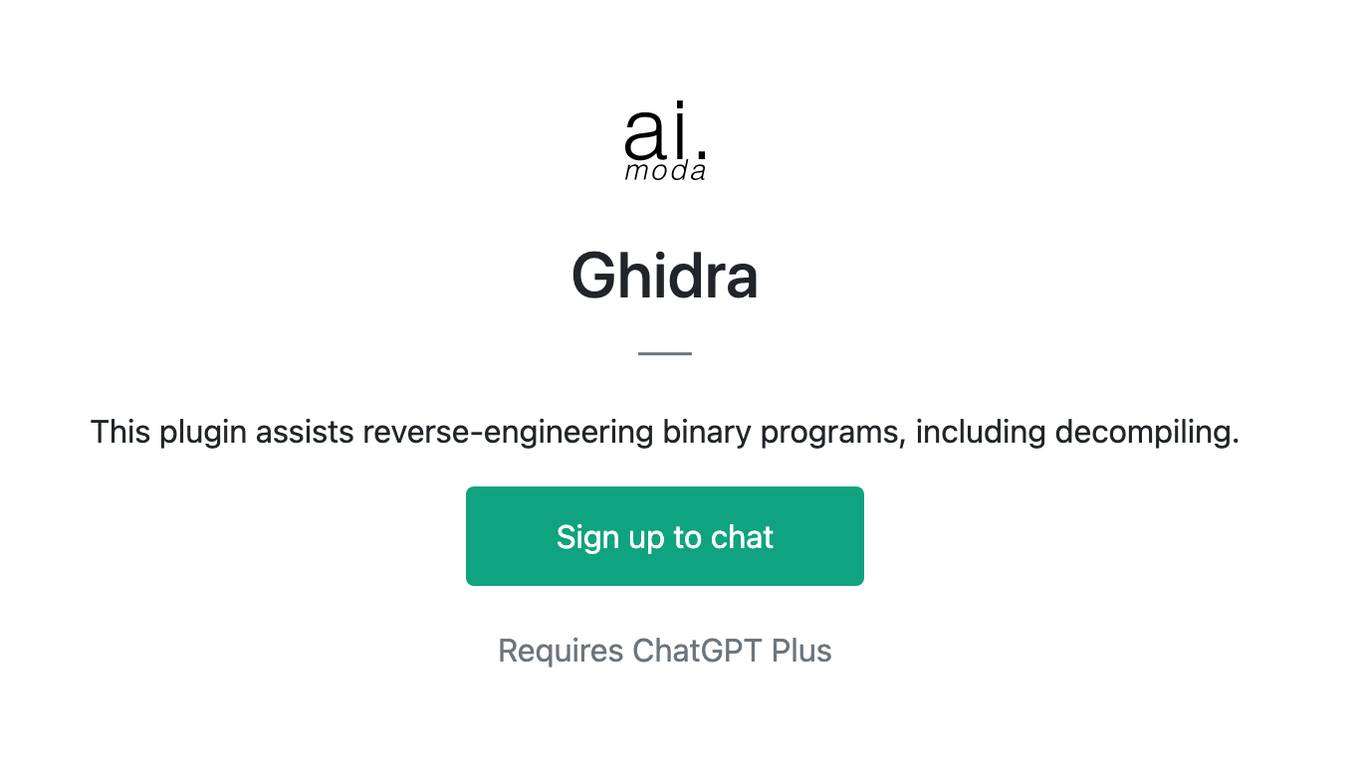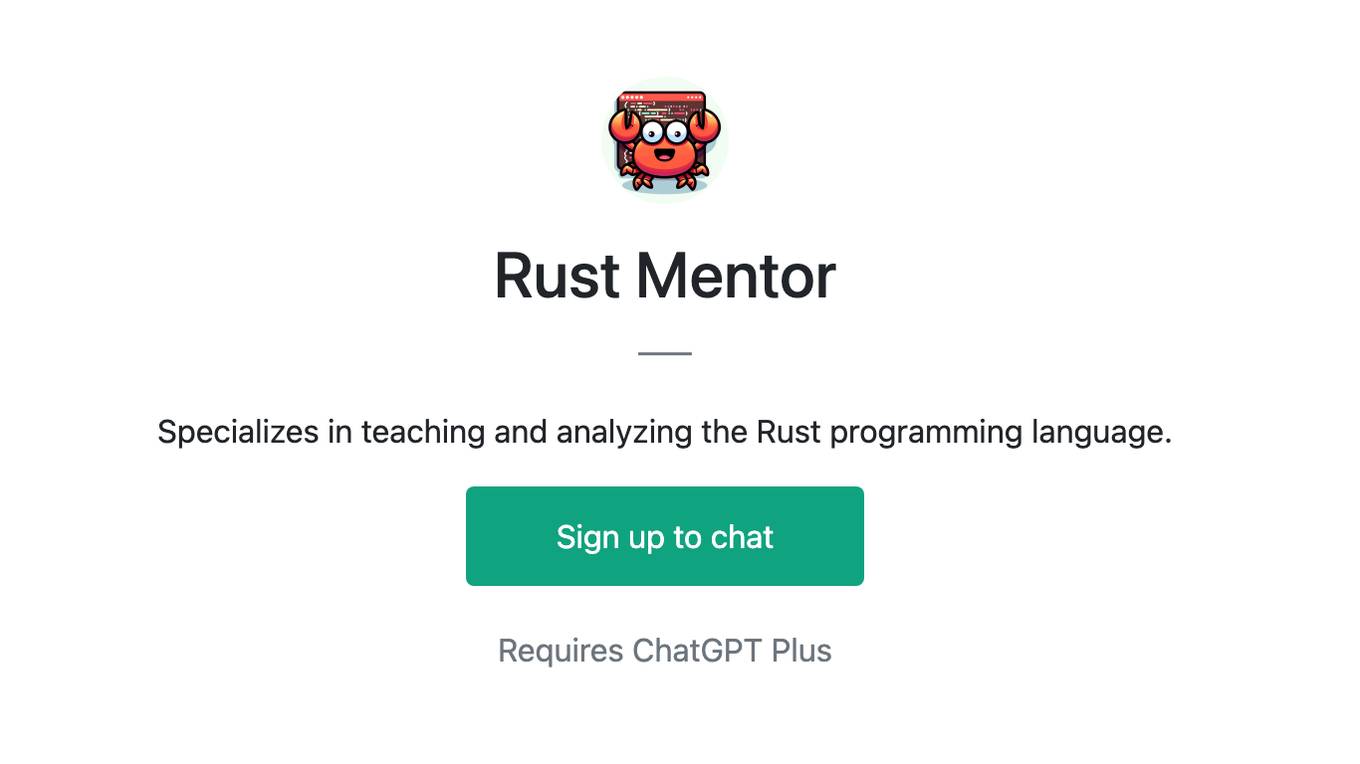Best AI tools for< Analyze Code Complexity >
20 - AI tool Sites
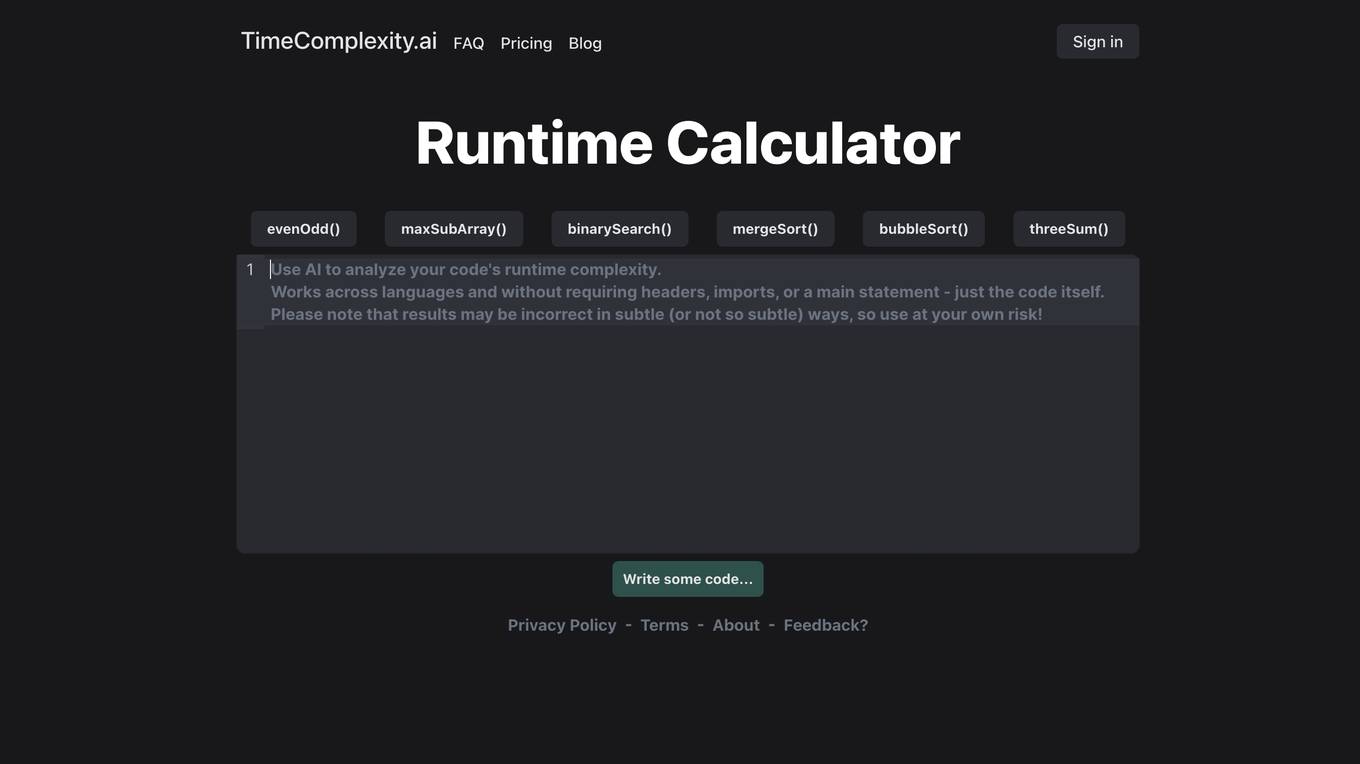
TimeComplexity.ai
TimeComplexity.ai is an AI tool that helps users analyze the runtime complexity of their code. It works seamlessly across different programming languages without the need for headers, imports, or a main statement. Users can input their code and receive insights on its runtime efficiency. However, it's important to note that the results may not always be accurate, so caution is advised when using the tool.
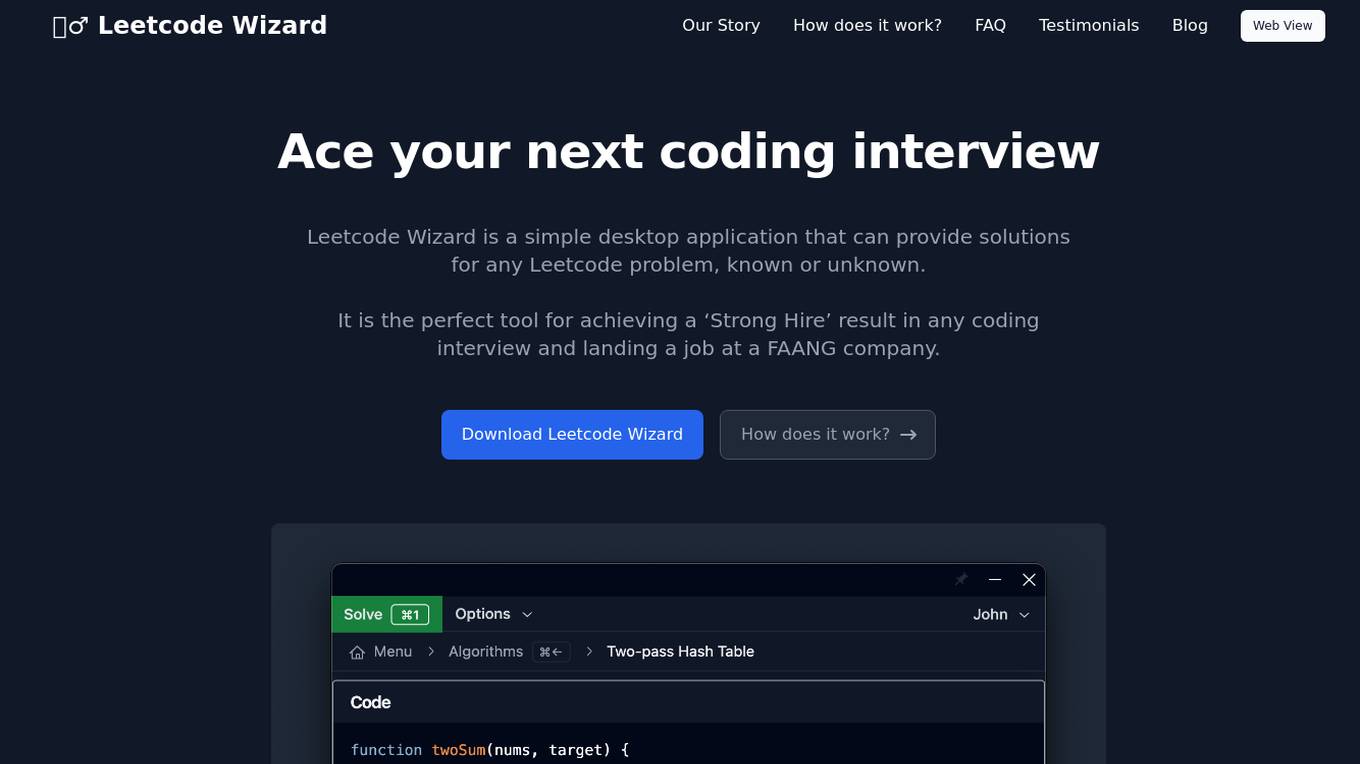
Leetcode Wizard
Leetcode Wizard is a desktop application designed to assist users in coding interviews by providing solutions for any Leetcode problem, known or unknown. It aims to help users achieve success in coding interviews, particularly at top tech companies like FAANG. The application uses AI to analyze coding problems, suggest algorithms, generate code output, and provide a complexity analysis. Leetcode Wizard is built with a privacy-first mindset, ensuring undetectable operation during coding interviews.
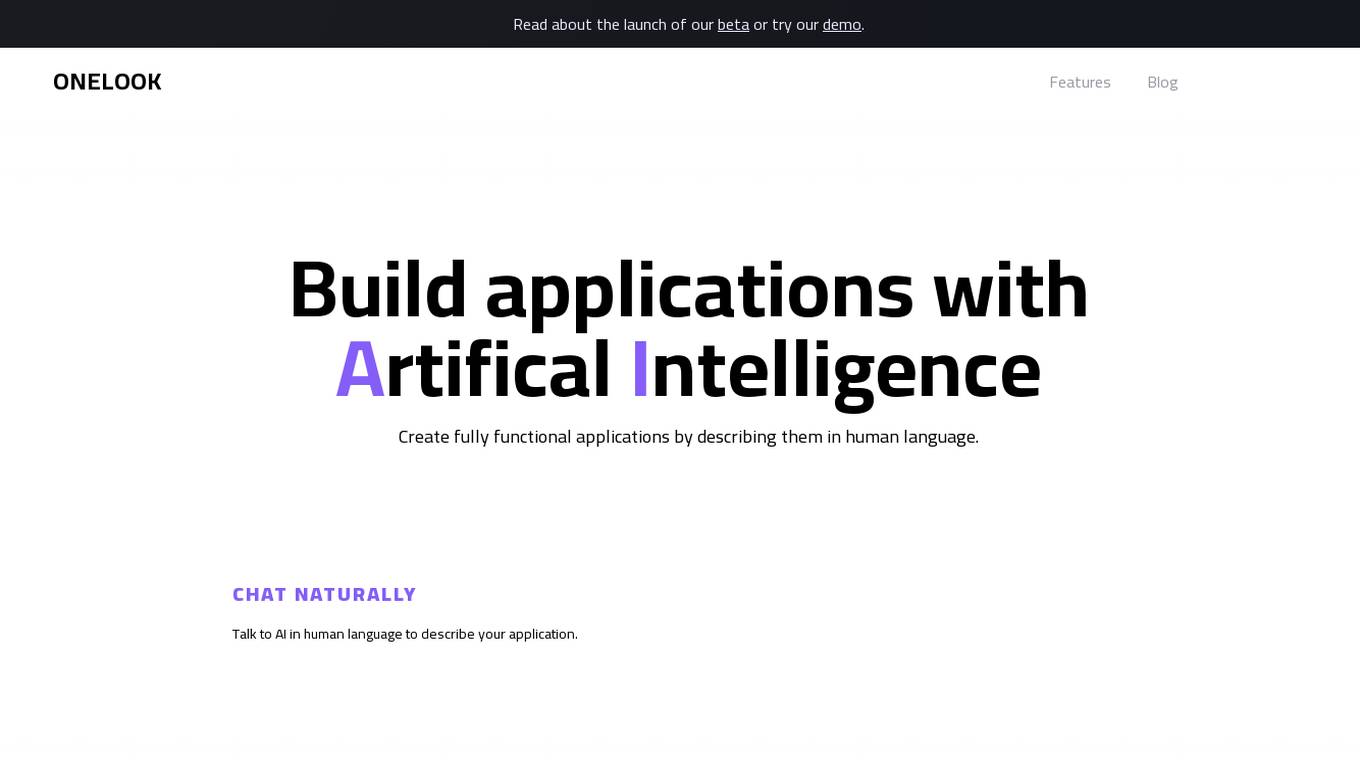
Onelook
Onelook is a revolutionary platform that empowers users to create fully functional applications using natural language. By eliminating the complexities of traditional development tools, Onelook makes app building accessible to everyone. With its intuitive AI-powered interface, users can simply describe their application in human language, and Onelook will automatically generate the necessary code. This groundbreaking approach streamlines the development process, enabling users to focus on their core business logic rather than getting bogged down in technical details.
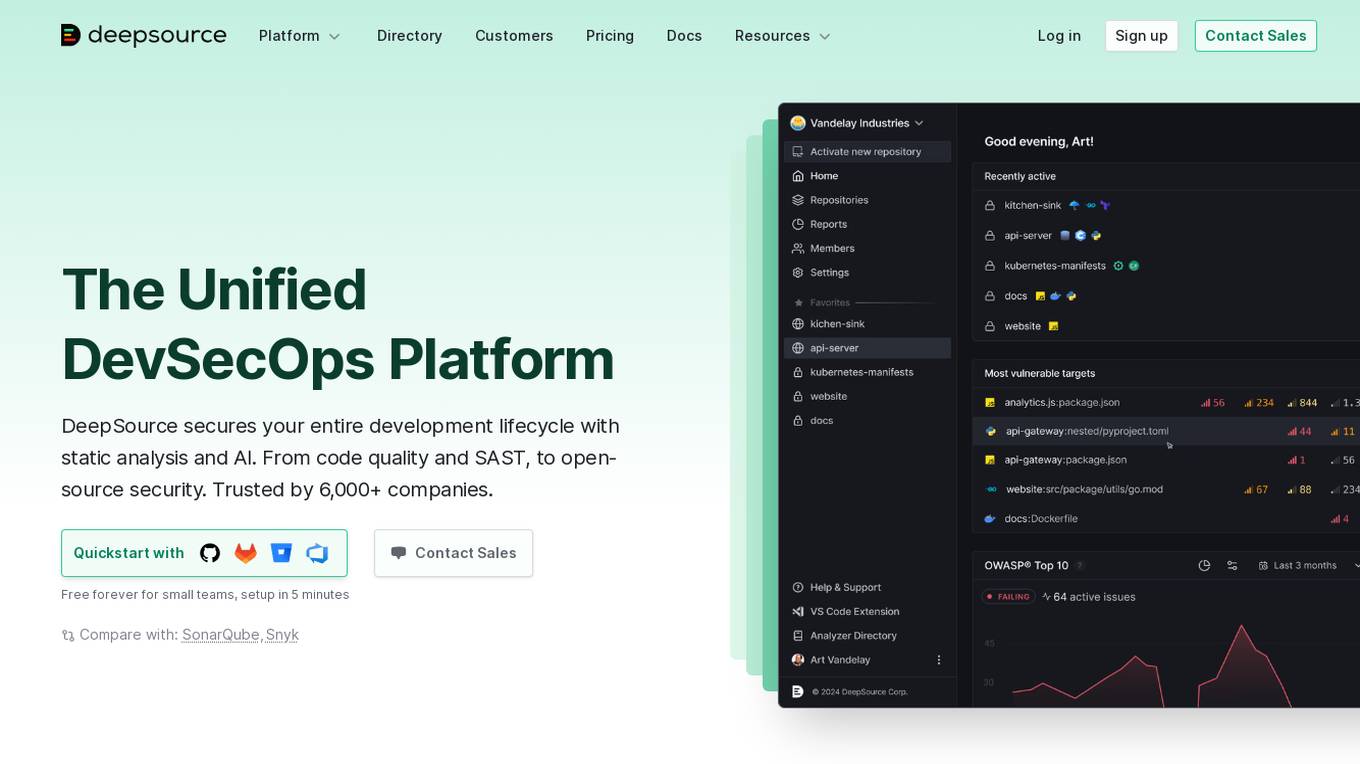
DeepSource
DeepSource is a Unified DevSecOps Platform that secures the entire development lifecycle with static analysis and AI. It offers code quality and SAST, open-source security, and is trusted by over 6,000 companies. The platform helps in finding and fixing security vulnerabilities before code is merged, with a low false-positive rate and customizable security gates for pull requests. DeepSource is built for modern software development, providing features like Autofix™ AI, code coverage, and integrations with popular tools like Jira and GitHub Issues. It offers detailed reports, issue suppression, and metric thresholds to ensure clean and secure code shipping.
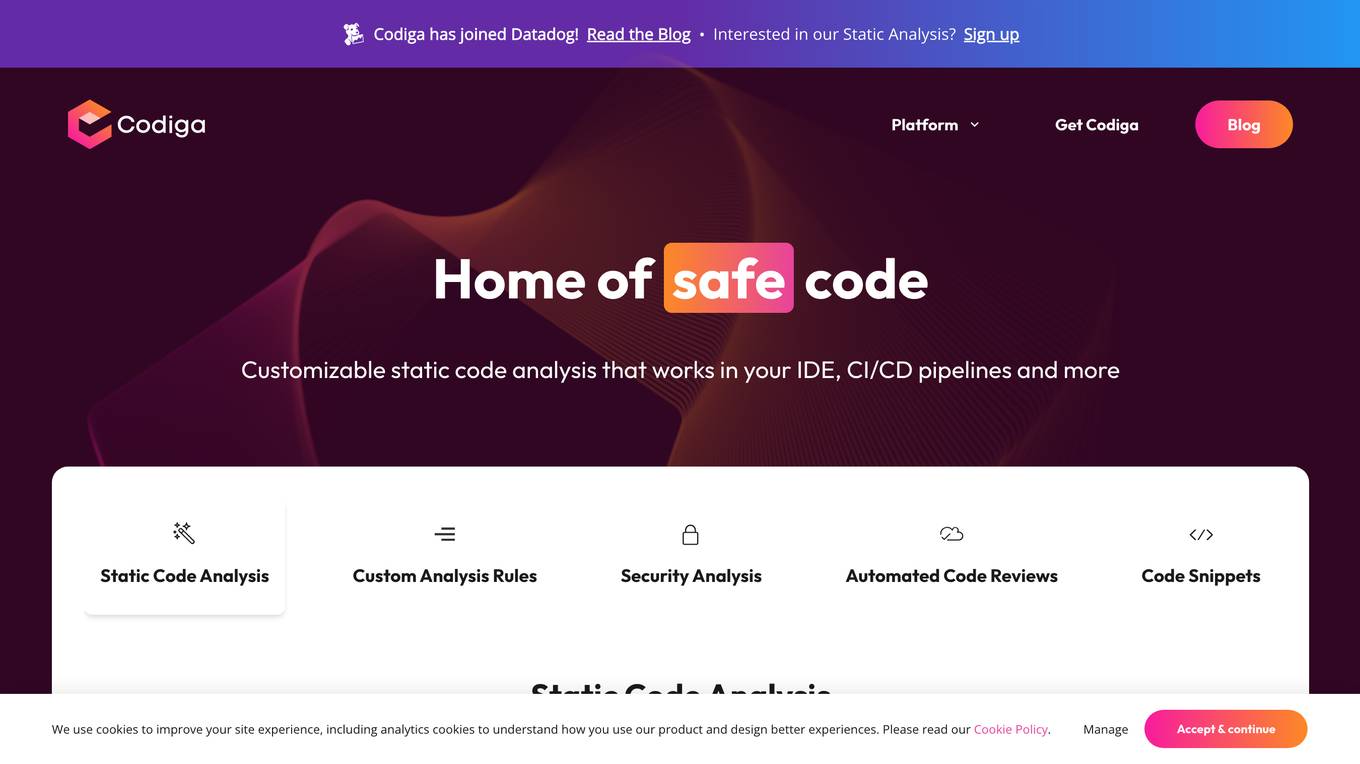
Codiga
Codiga is a static code analysis tool that helps developers write clean, safe, and secure code. It works in real-time in your IDE and CI/CD pipelines, and it can be customized to meet your specific needs. Codiga supports a wide range of languages and frameworks, and it integrates with popular tools like GitHub, GitLab, and Bitbucket.
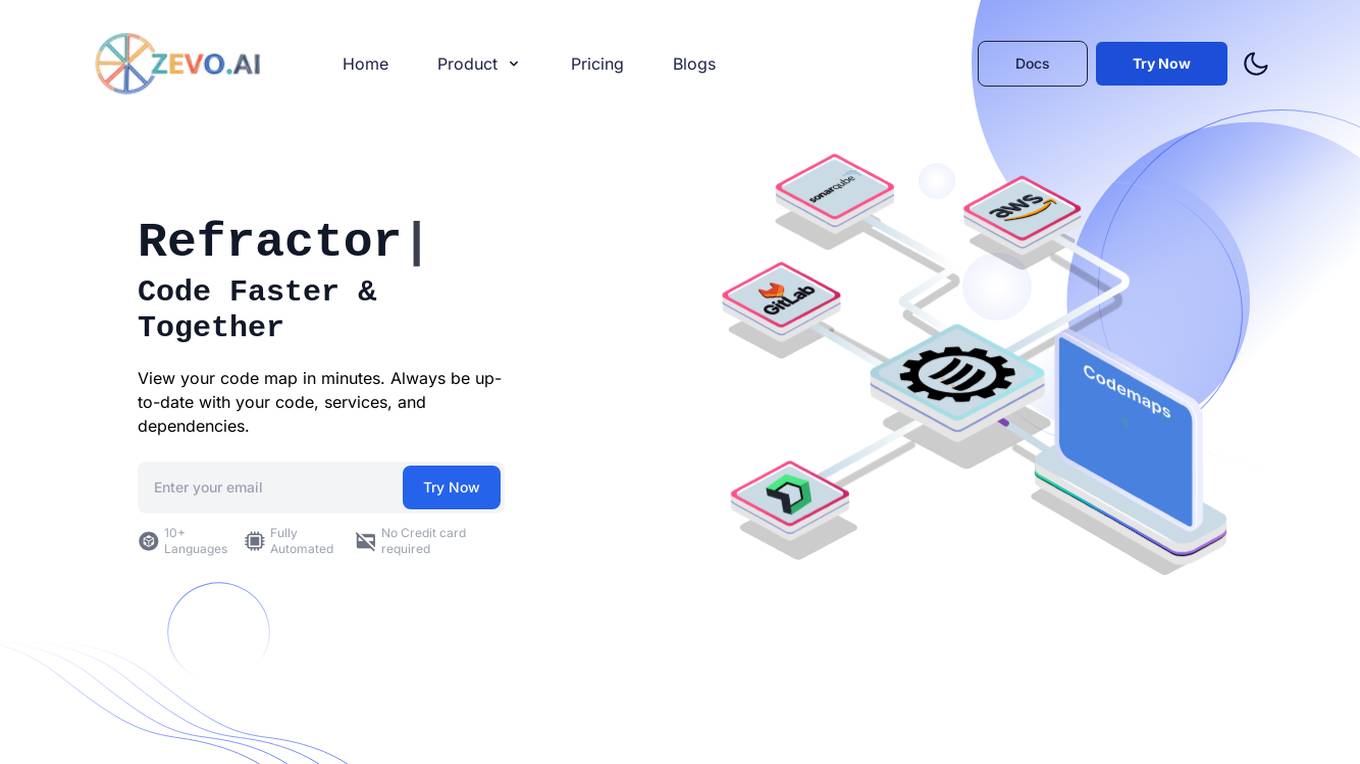
Zevo.ai
Zevo.ai is an AI-powered code visualization tool designed to accelerate code comprehension, deployment, and observation. It offers dynamic code analysis, contextual code understanding, and automatic code mapping to help developers streamline shipping, refactoring, and onboarding processes for both legacy and existing applications. By leveraging AI models, Zevo.ai provides deeper insights into code, logs, and cloud infrastructure, enabling developers to gain a better understanding of their codebase.
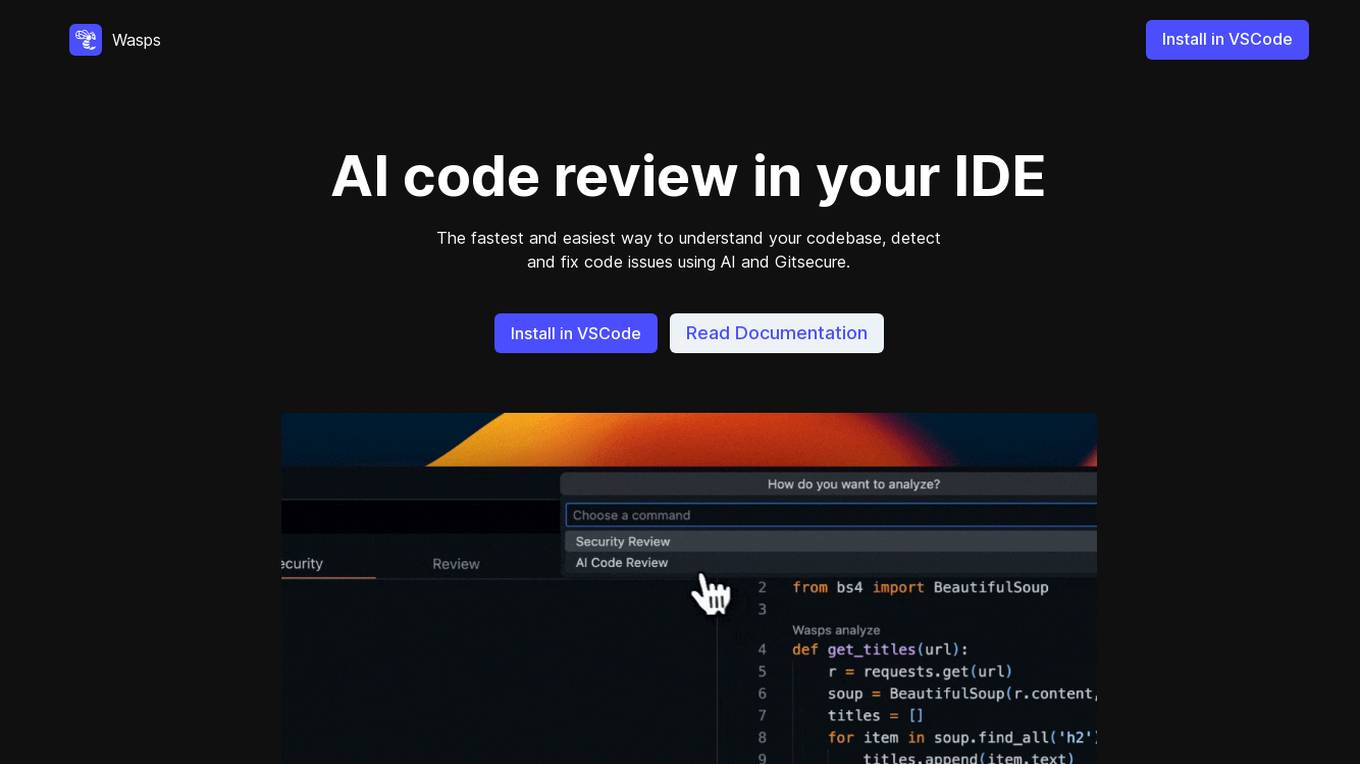
Wasps
Wasps is an AI code review tool that integrates seamlessly into VSCode, providing developers with a fast and efficient way to understand their codebase, detect and fix code issues using AI and Gitsecure. With Wasps, developers can identify and fix buggy & vulnerable code in minutes, receive clear and actionable feedback driven by deep analysis, and get recommendations for potential issues and improvements within their codebase. The tool allows developers to keep coding as usual while Wasps analyzes their code for them, making it easier to maintain code quality and keep bugs out of their code.
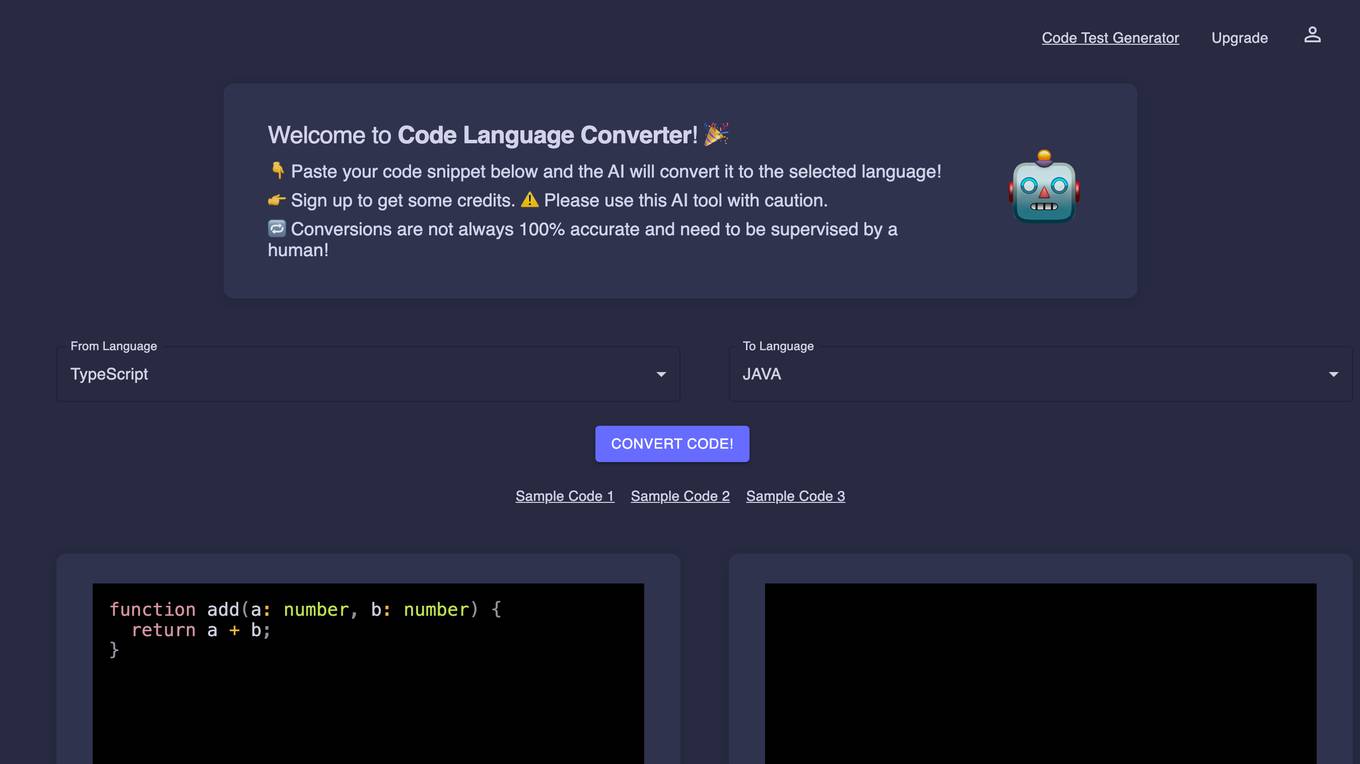
CodeConverter.com
CodeConverter.com is an AI code converter tool that allows users to convert code instantly across 120 programming languages. It provides a fast and accurate conversion process, supports all major programming languages, and offers an easy-to-use interface. The platform is completely online, secure, and private, ensuring user data privacy. CodeConverter.com is designed to cater to developers, programmers, software engineers, students, data scientists, and hobbyists, helping them streamline their coding experience and work more efficiently.
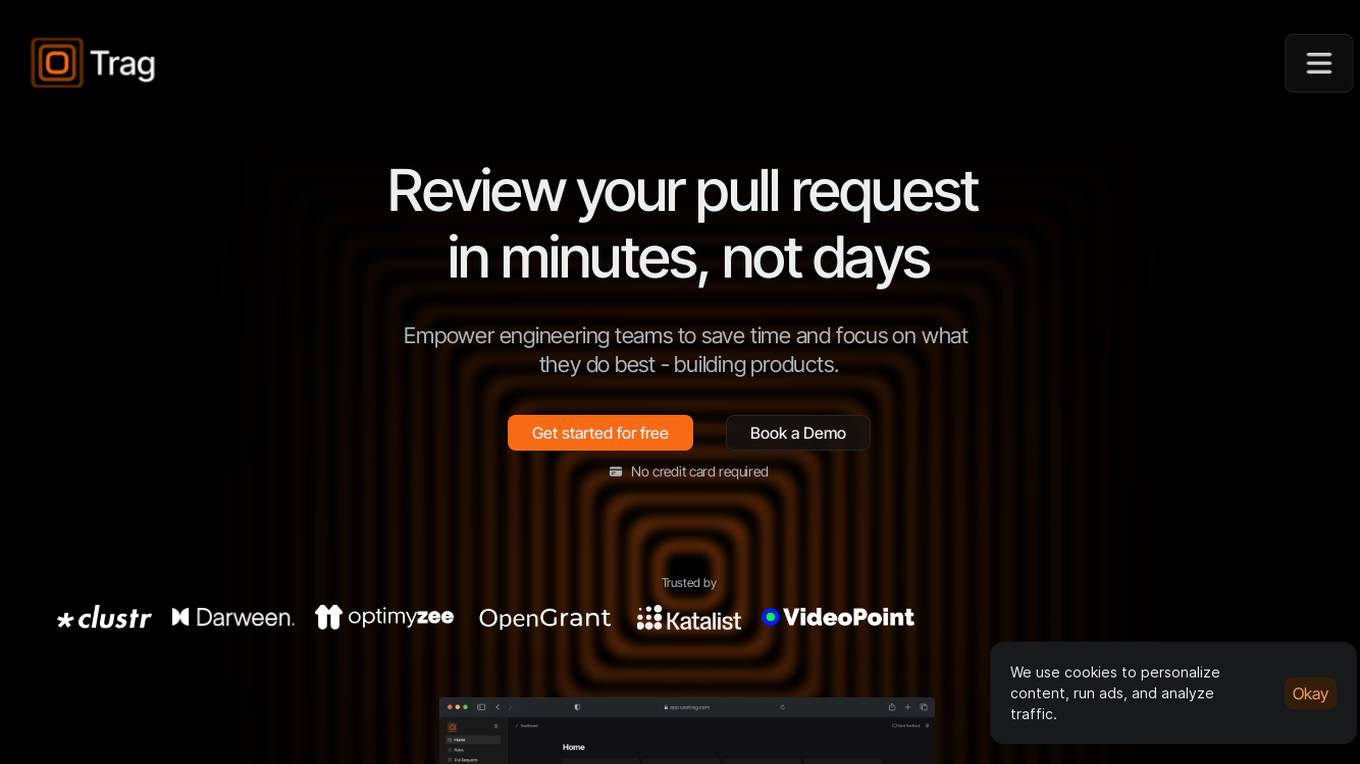
Trag
Trag is an AI-powered tool designed to review pull requests in minutes, empowering engineering teams to save time and focus on building products. With Trag, users can create custom patterns for code review, ensuring best practices are followed and bugs are caught early. The tool offers features like autofix with AI, monitoring progress, connecting multiple repositories, pull request review, analytics, and team workspaces. Trag stands out from traditional linters by providing complex code understanding, semantic code analysis, predictive bug detection, and refactoring suggestions. It aims to streamline code reviews and help teams ship faster with AI-powered reviews.
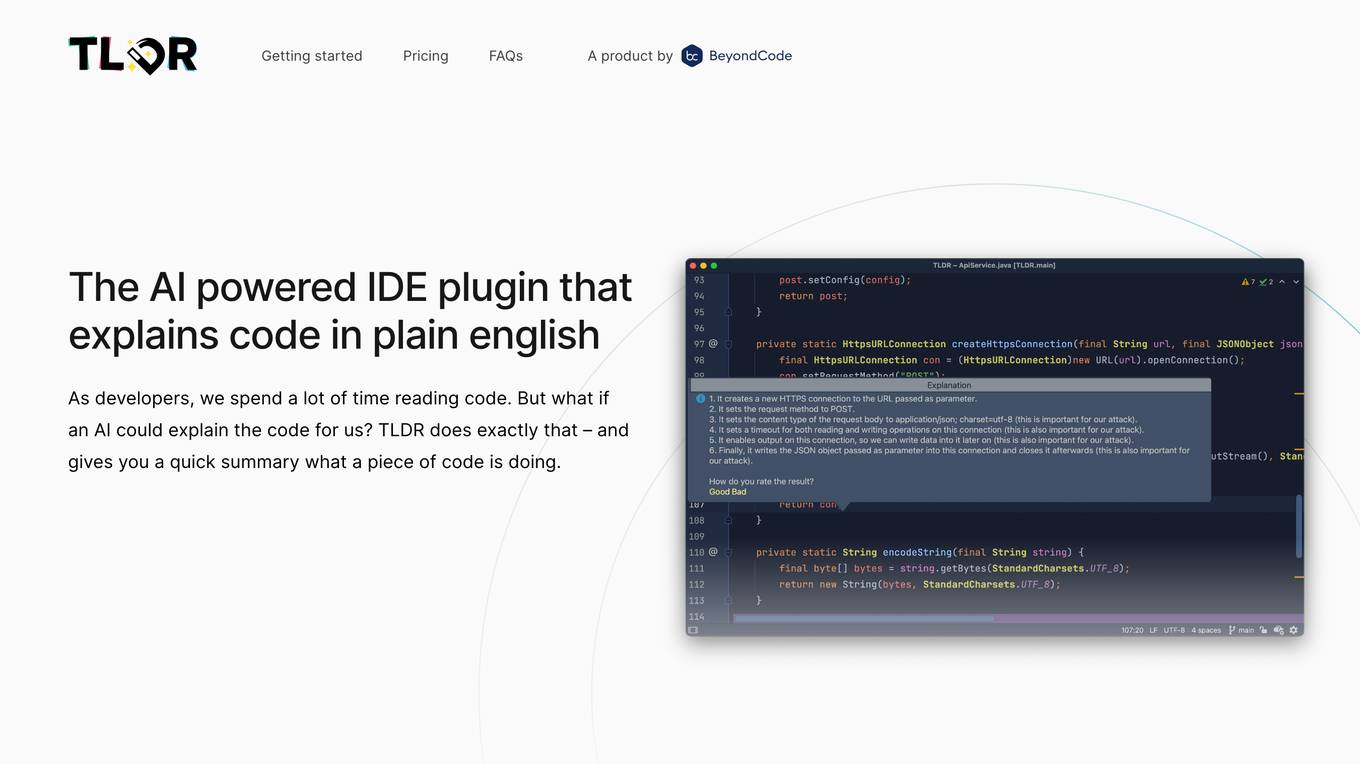
TLDR
TLDR is an AI-powered IDE plugin that explains code in plain English. It helps developers understand code by providing quick summaries of what a piece of code is doing. The tool supports almost all programming languages and offers a free version for users to try before purchasing. TLDR aims to simplify the understanding of complex code structures and save developers time in comprehending codebases.
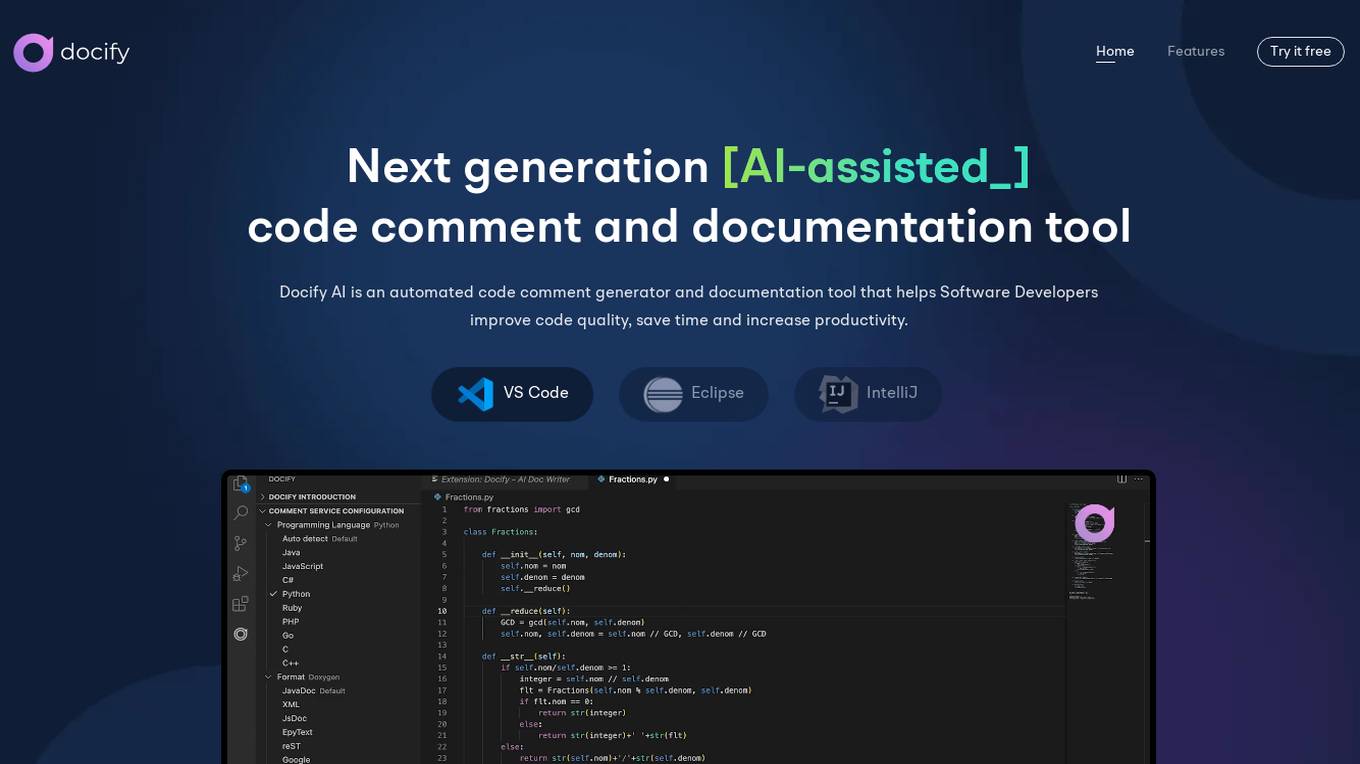
Docify AI
Docify AI is an AI-assisted code comment and documentation tool designed to help software developers improve code quality, save time, and increase productivity. It offers features such as automated documentation generation, comment translation, inline comments, and code coverage analysis. The tool supports multiple programming languages and provides a user-friendly interface for efficient code documentation. Docify AI is built on proprietary AI models, ensuring data privacy and high performance for professional developers.
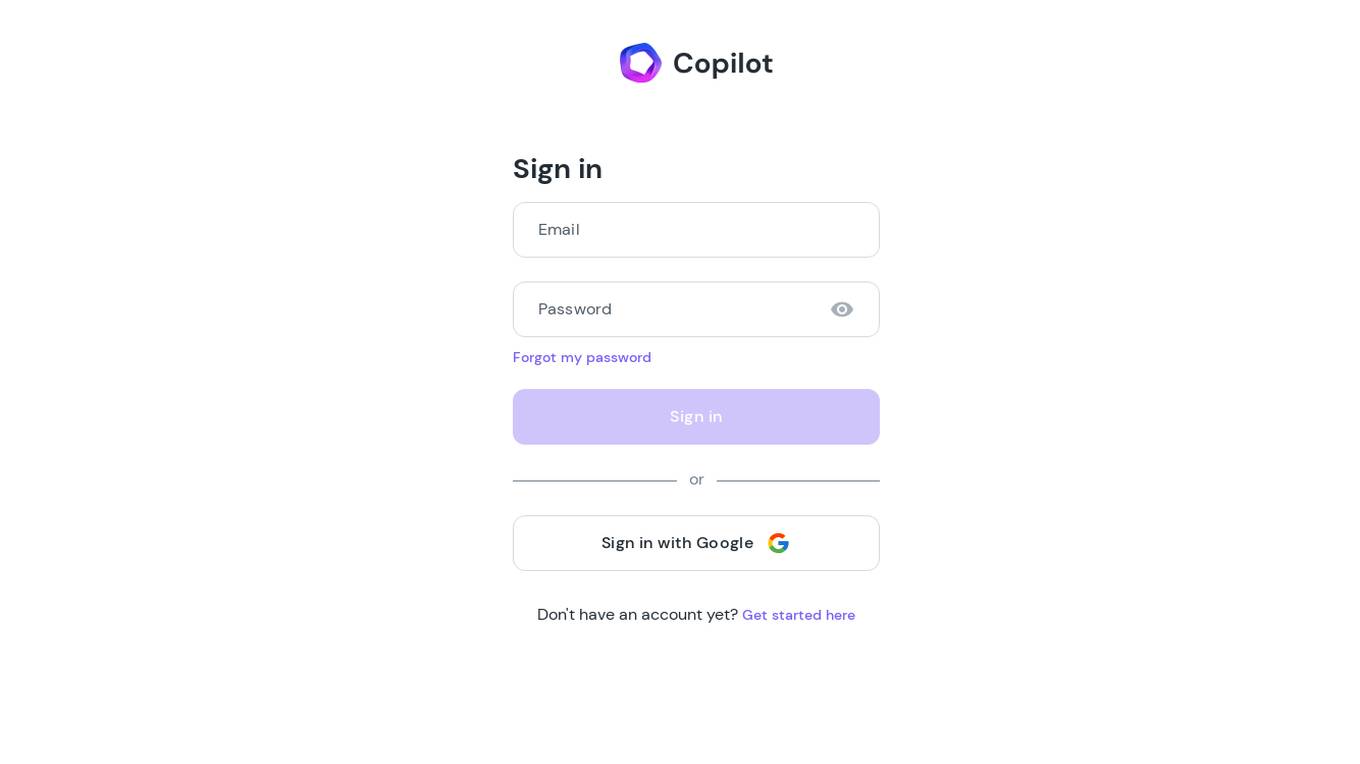
Copilot
Copilot is an AI-powered code completion tool developed by OpenAI. It assists developers in writing code by providing suggestions and completing code snippets based on the context. Copilot uses machine learning algorithms to analyze code patterns and predict the next lines of code, making coding faster and more efficient. With its intuitive interface, Copilot aims to streamline the coding process and enhance developer productivity.
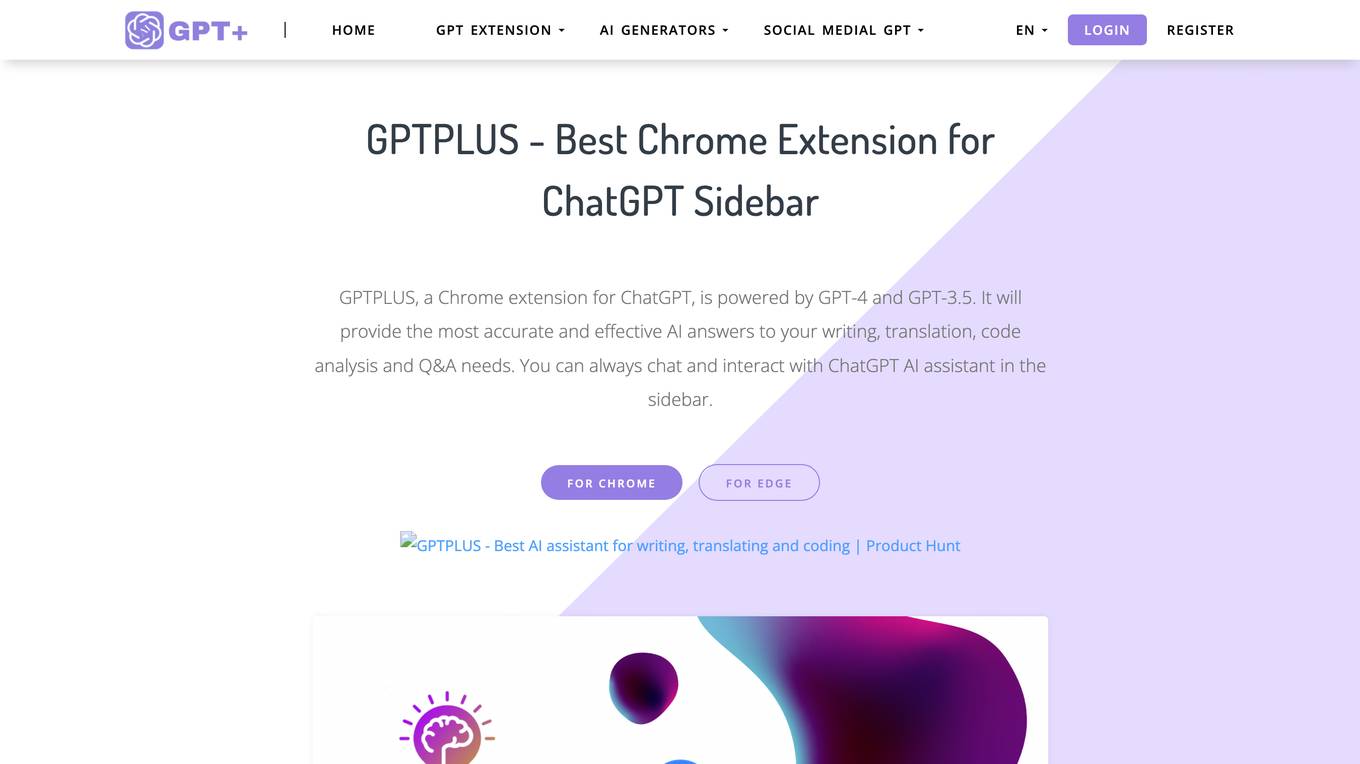
GPTPLUS
GPTPLUS is a Chrome and Edge browser extension powered by GPT-4 and GPT-3.5 that provides AI-powered writing, translation, code analysis, and Q&A assistance. It allows users to chat with ChatGPT in a sidebar, use prompts to enhance answers, and process selected text with a single click. GPTPLUS is free to use, with premium plans offering additional features.
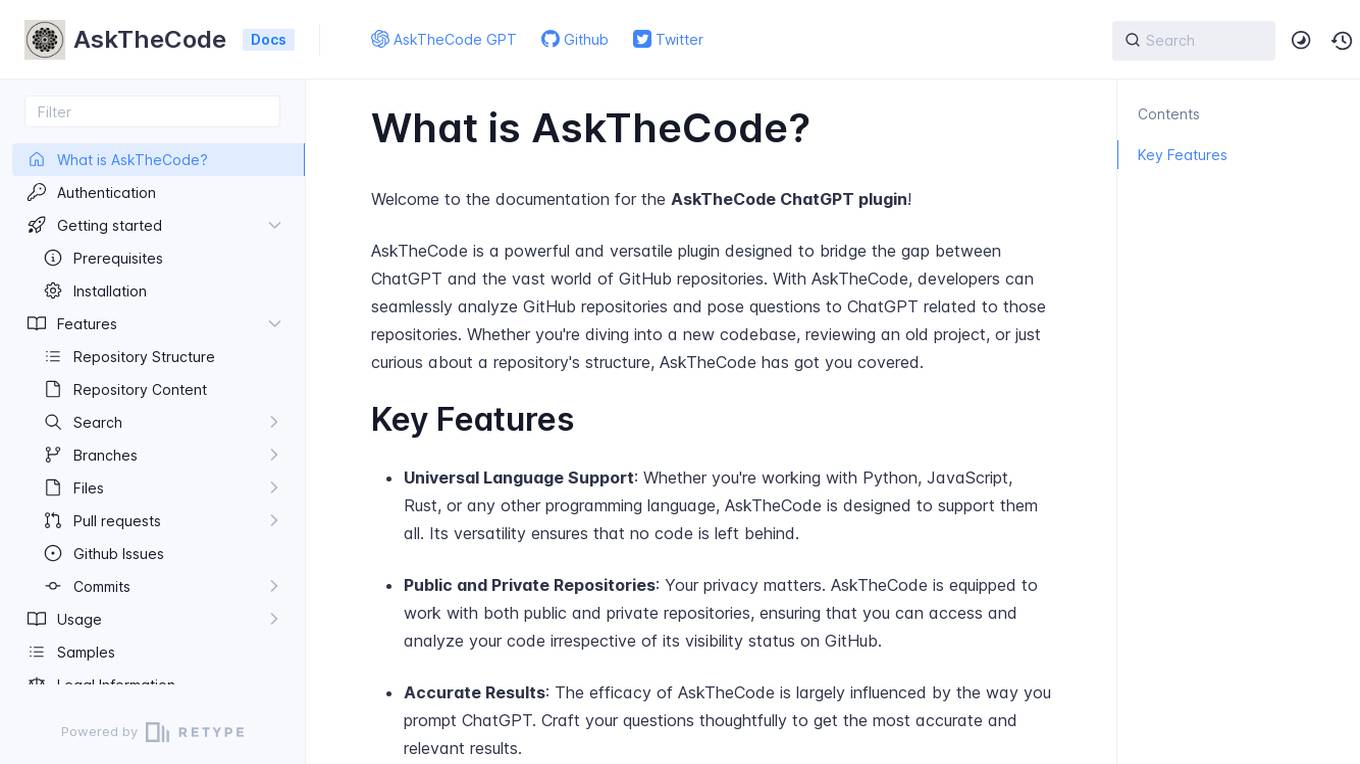
AskTheCode
AskTheCode is a powerful and versatile plugin designed to bridge the gap between ChatGPT and GitHub repositories. It allows developers to seamlessly analyze GitHub repositories and ask questions related to those repositories using ChatGPT. The tool supports universal language, works with both public and private repositories, and provides accurate results based on thoughtful prompts. AskTheCode aims to assist developers in exploring and understanding codebases, projects, and repository structures.
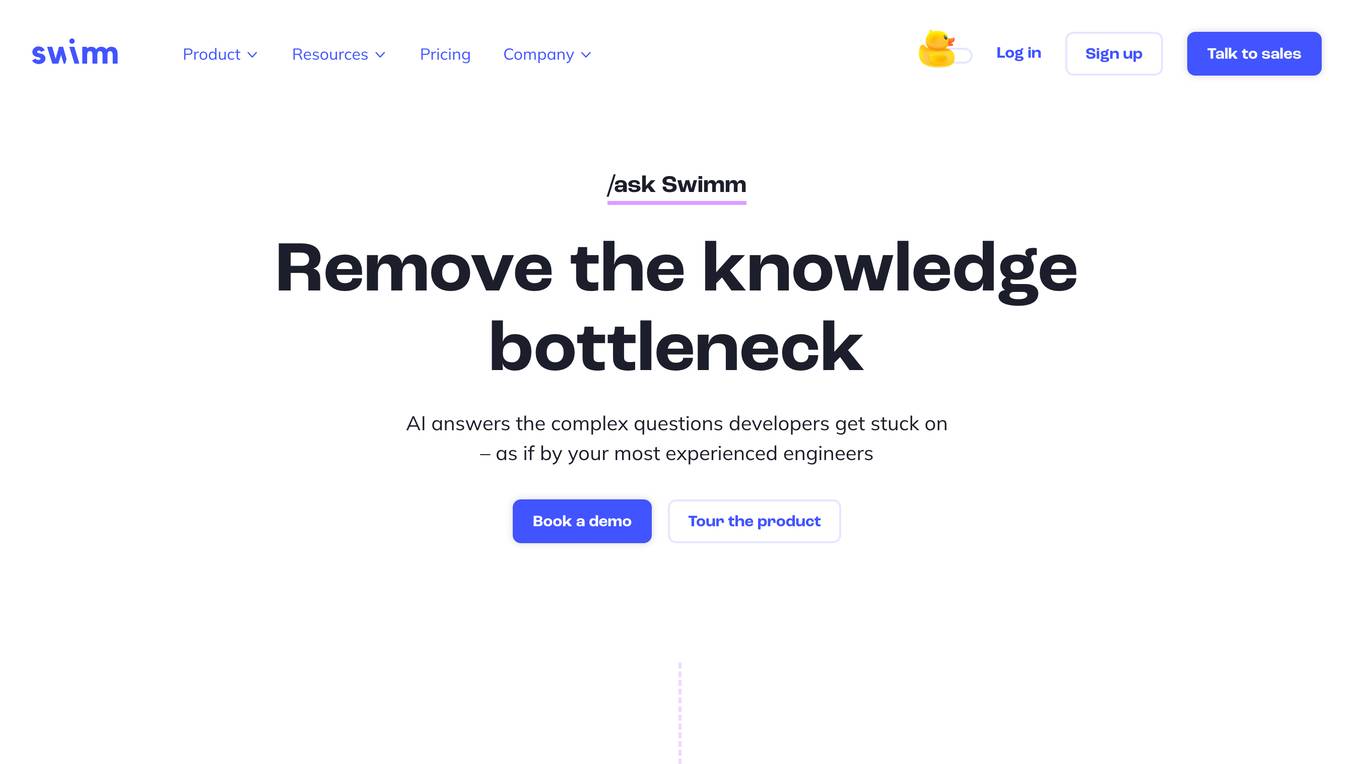
Swimm
Swimm is an Application Understanding Platform that helps users modernize and maintain their legacy code by automatically reverse engineering applications, creating a living inventory of programs and dependencies, uncovering business logic buried in code, and enabling users to plan migrations and align teams around clean architecture. It combines advanced deterministic code analysis with AI to deliver reliable results, ensuring accurate explanations and surfacing all relevant information. Swimm is secure, scalable, and customizable, allowing users to document large codebases quickly and efficiently.
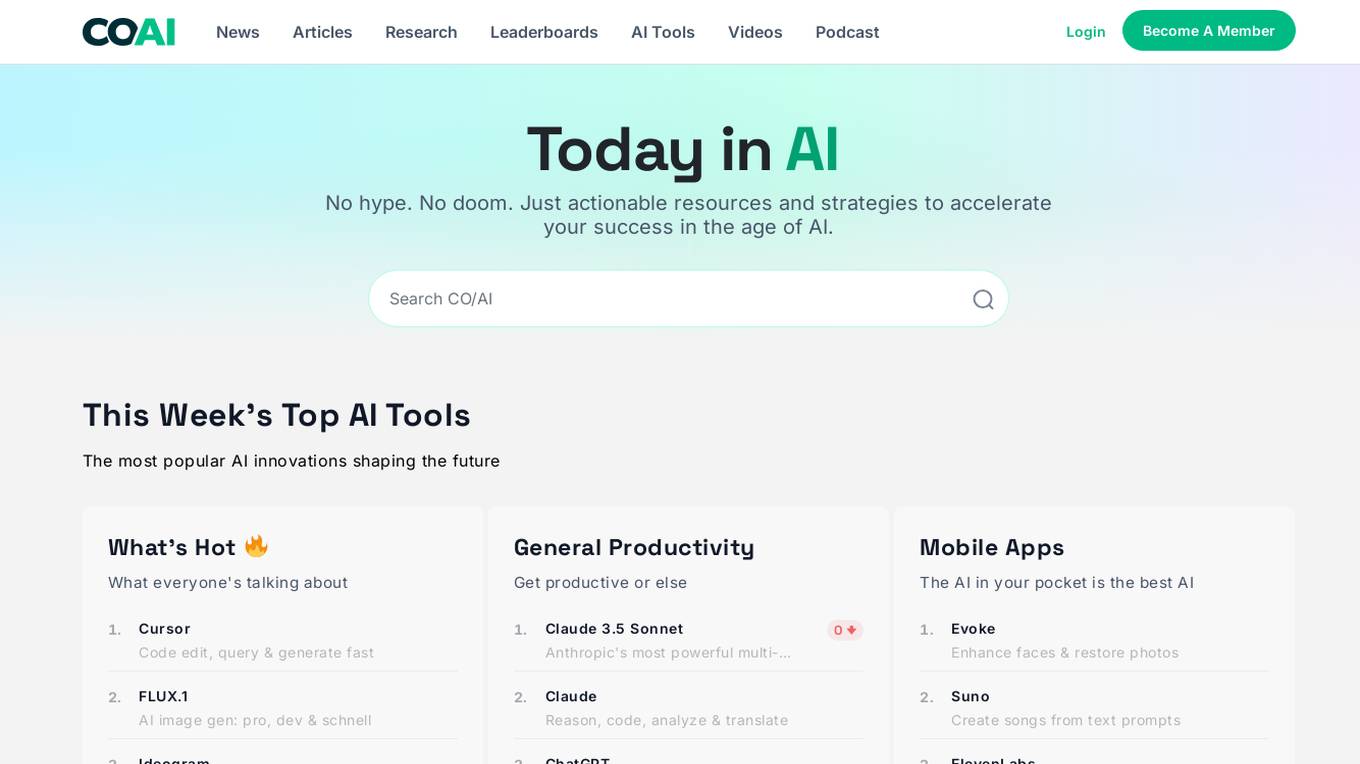
CO/AI
CO/AI is an AI tool that provides actionable resources and strategies to accelerate success in the age of AI. It offers a wide range of AI tools, resources, and community discussions to help users stay updated and informed about the latest trends and developments in artificial intelligence.
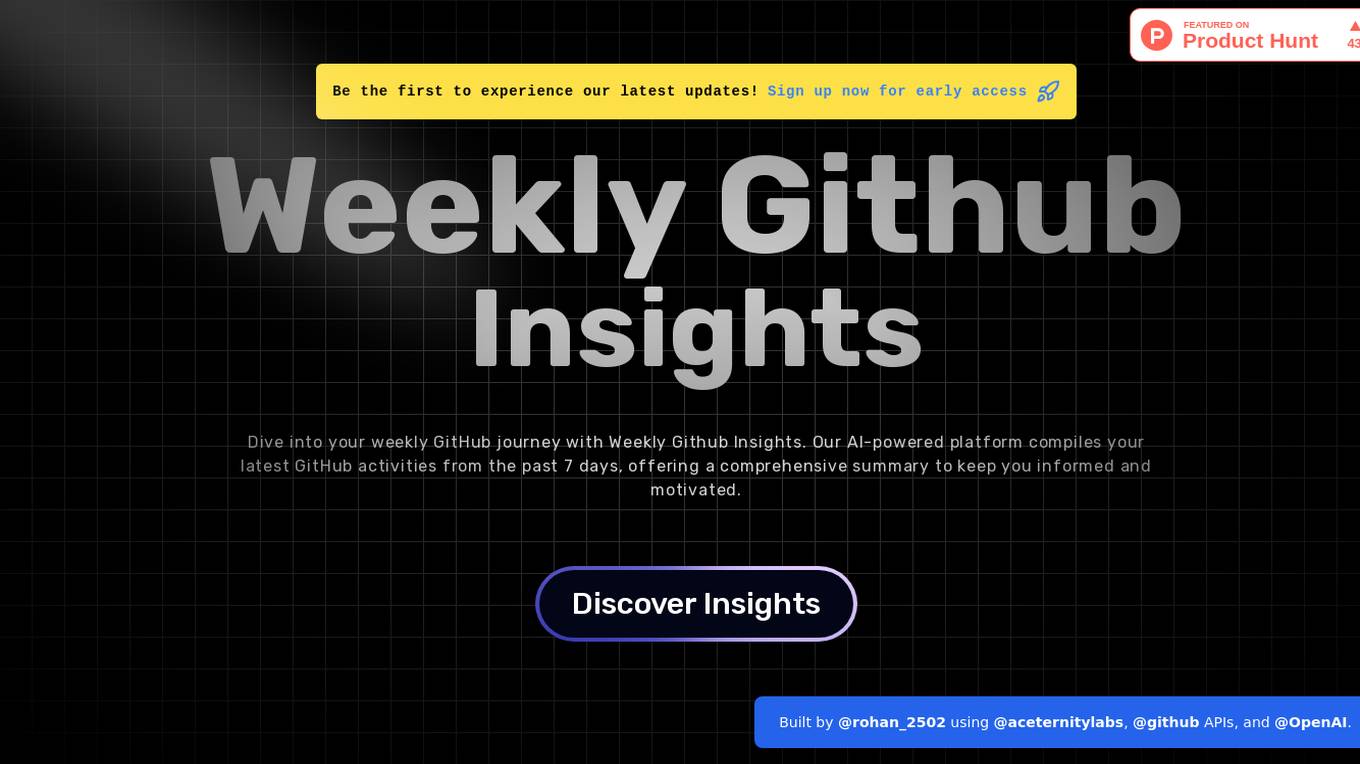
Weekly Github Insights
Weekly Github Insights is an AI-powered platform that provides users with a comprehensive summary of their latest GitHub activities from the past 7 days. It aims to keep users informed and motivated by compiling their weekly GitHub journey. The platform is built by @rohan_2502 using @aceternitylabs, @github APIs, and @OpenAI.
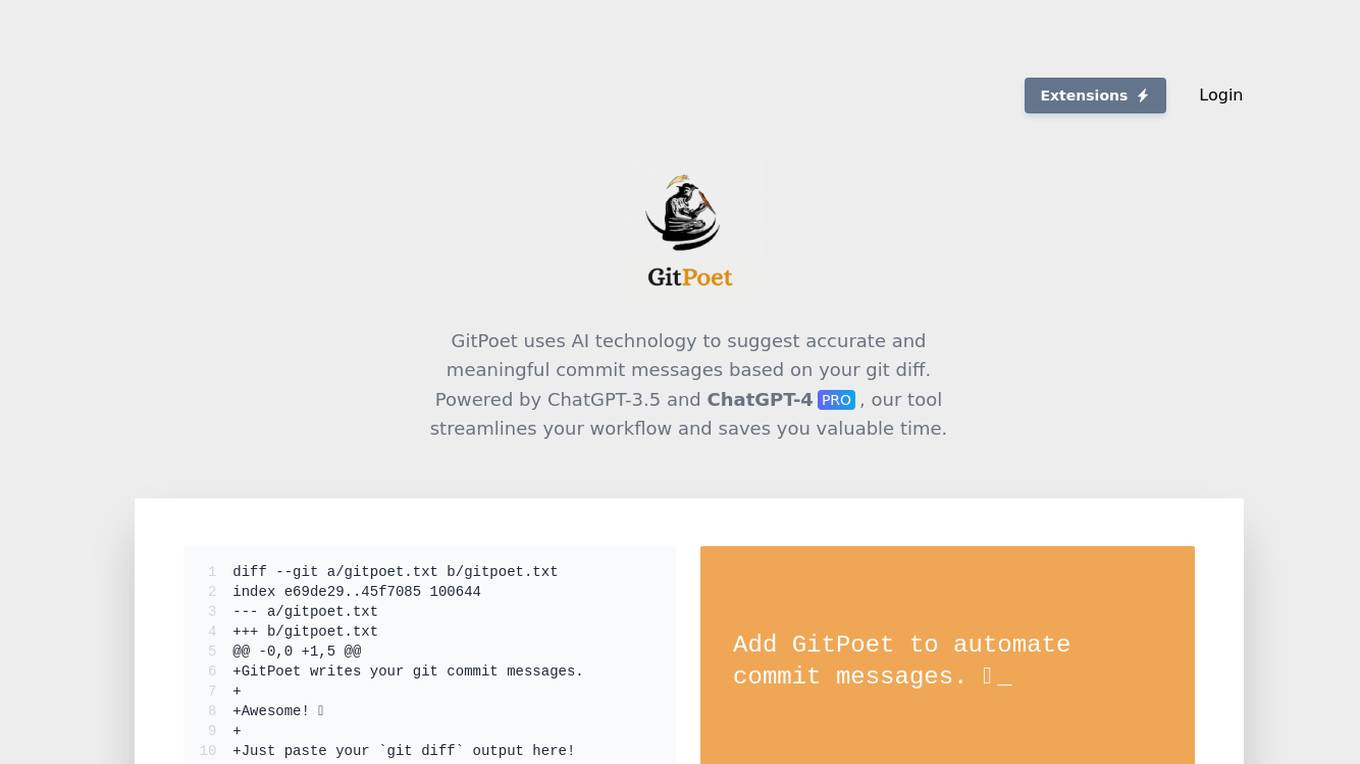
GitPoet
GitPoet is an AI tool that generates creative and meaningful Git commit messages. It uses advanced natural language processing algorithms to analyze code changes and suggest relevant commit messages. With GitPoet, developers can save time and effort in writing commit messages, while also improving the overall quality and consistency of their commit history.
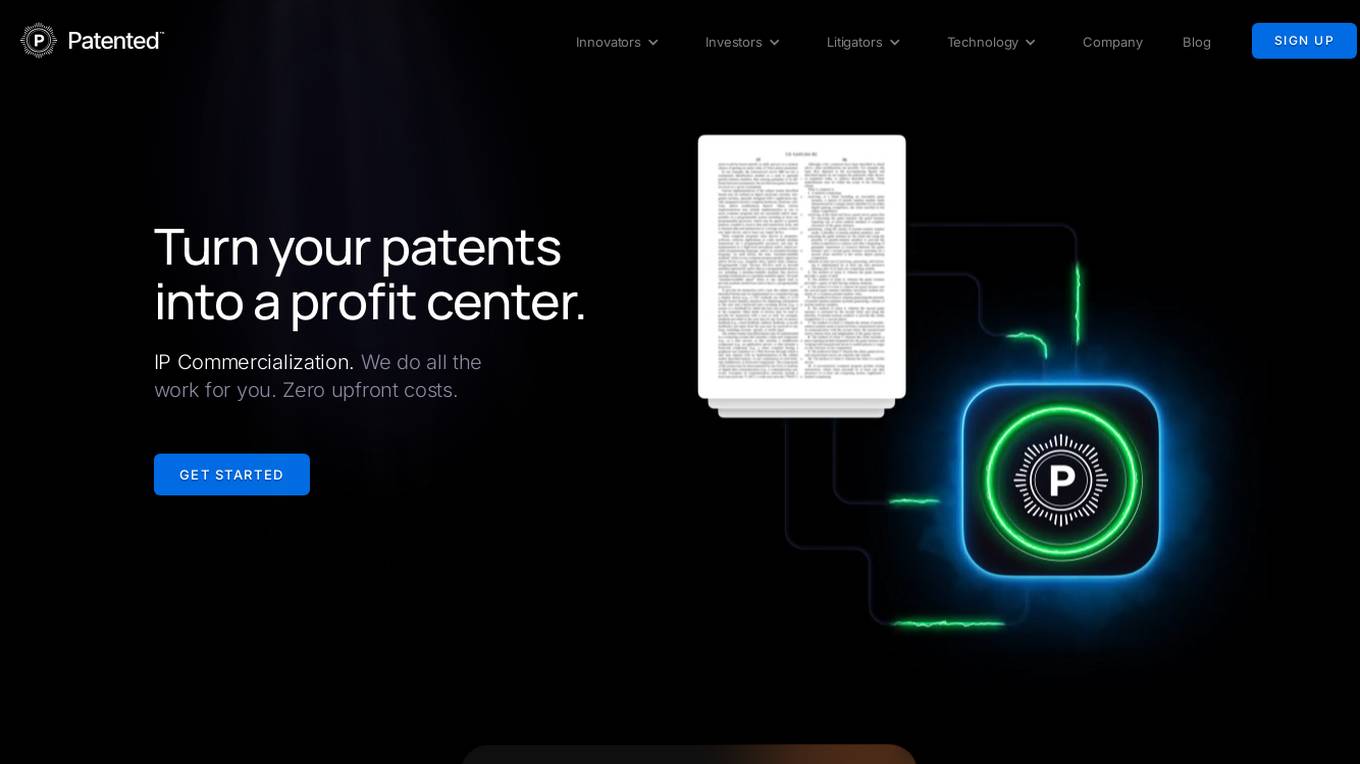
Patented.ai
Patented.ai is an AI-powered platform that specializes in IP commercialization, patent valuation, and litigation support. The platform helps users unlock hidden revenue from their IP portfolio, identify valuable innovations in their codebase, and get data-driven insights on patent value and industry applicability. It offers features such as source code analysis, identifying licensees instantly, and mapping patent claims to source code. Patented.ai is trusted by leading innovators and IP counsel worldwide for lightning-fast insights and comprehensive IP strength assessments.

Master of Code Global
Master of Code Global is an AI development company that offers a wide range of AI, web, and mobile solutions to enhance customer experiences. They specialize in services such as chatbot development, conversational AI, generative AI development, web development, software product development, and more. With a focus on leveraging advanced technology to automate tasks, analyze data effectively, and personalize customer interactions, Master of Code Global aims to provide custom world-class digital experiences for web and mobile platforms empowered by AI.
0 - Open Source AI Tools
20 - OpenAI Gpts
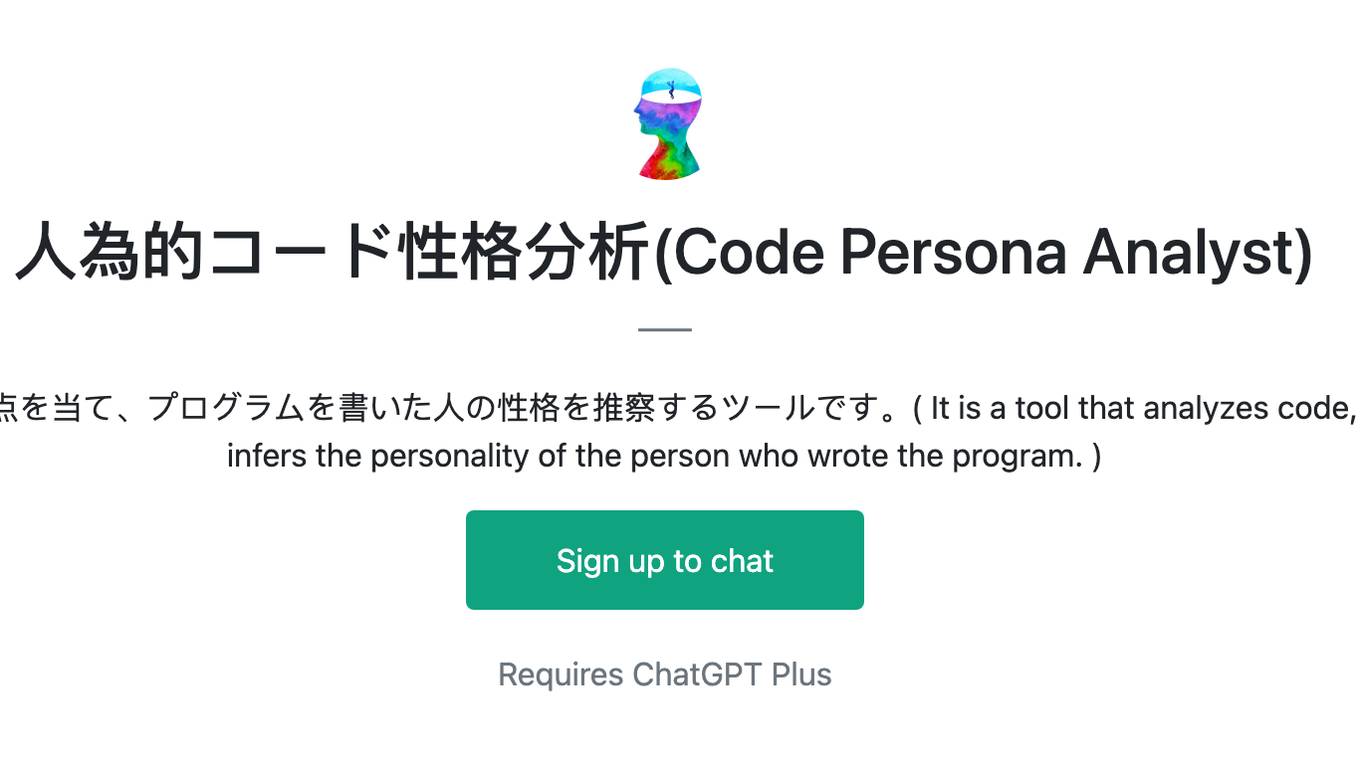
人為的コード性格分析(Code Persona Analyst)
コードを分析し、言語ではなくスタイルに焦点を当て、プログラムを書いた人の性格を推察するツールです。( It is a tool that analyzes code, focuses on style rather than language, and infers the personality of the person who wrote the program. )
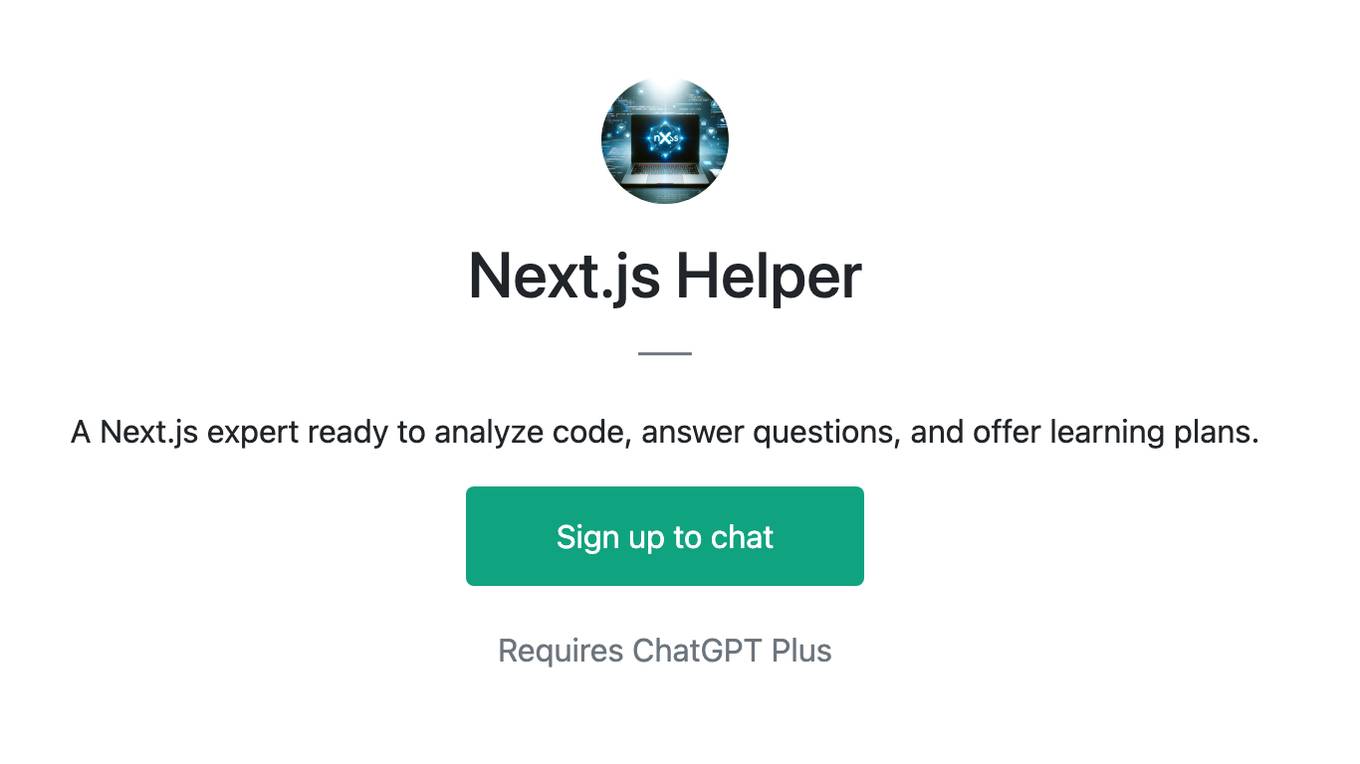
Next.js Helper
A Next.js expert ready to analyze code, answer questions, and offer learning plans.
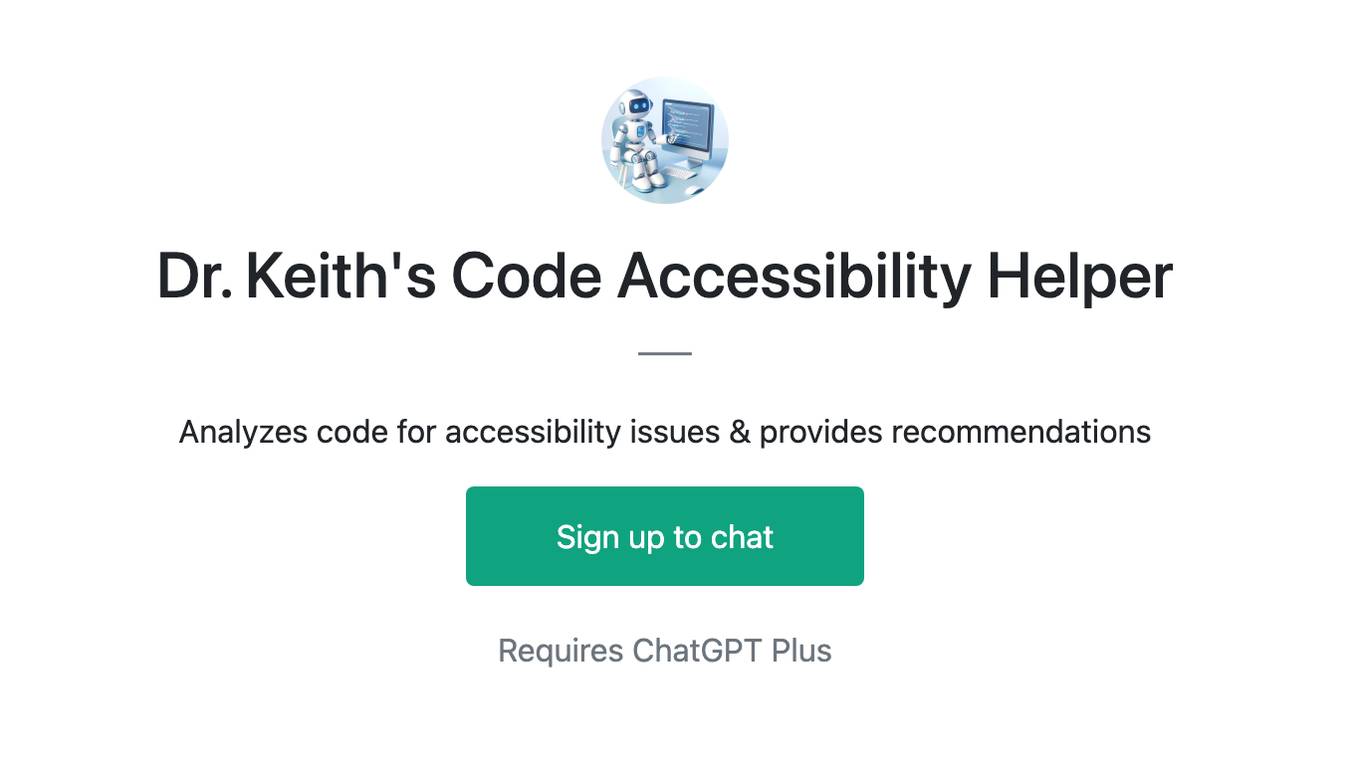
Dr. Keith's Code Accessibility Helper
Analyzes code for accessibility issues & provides recommendations
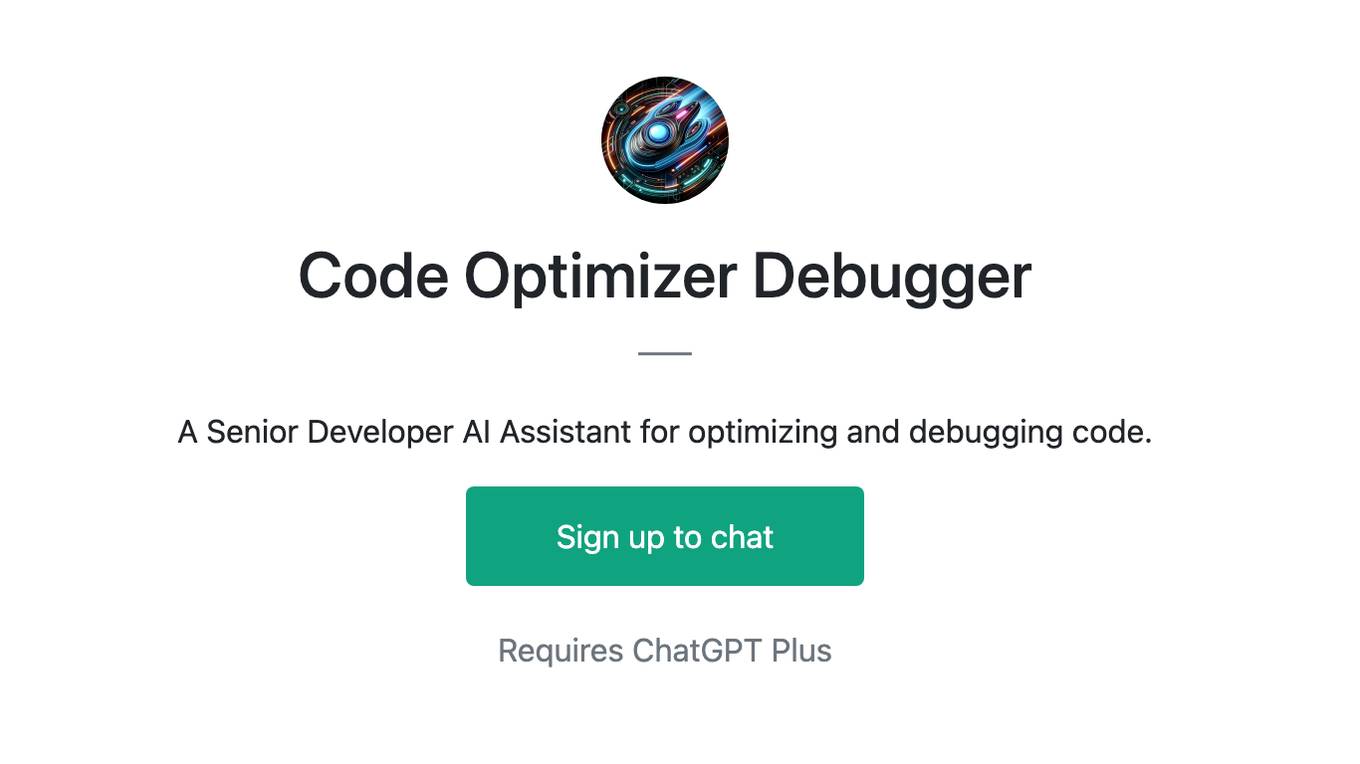
Code Optimizer Debugger
A Senior Developer AI Assistant for optimizing and debugging code.
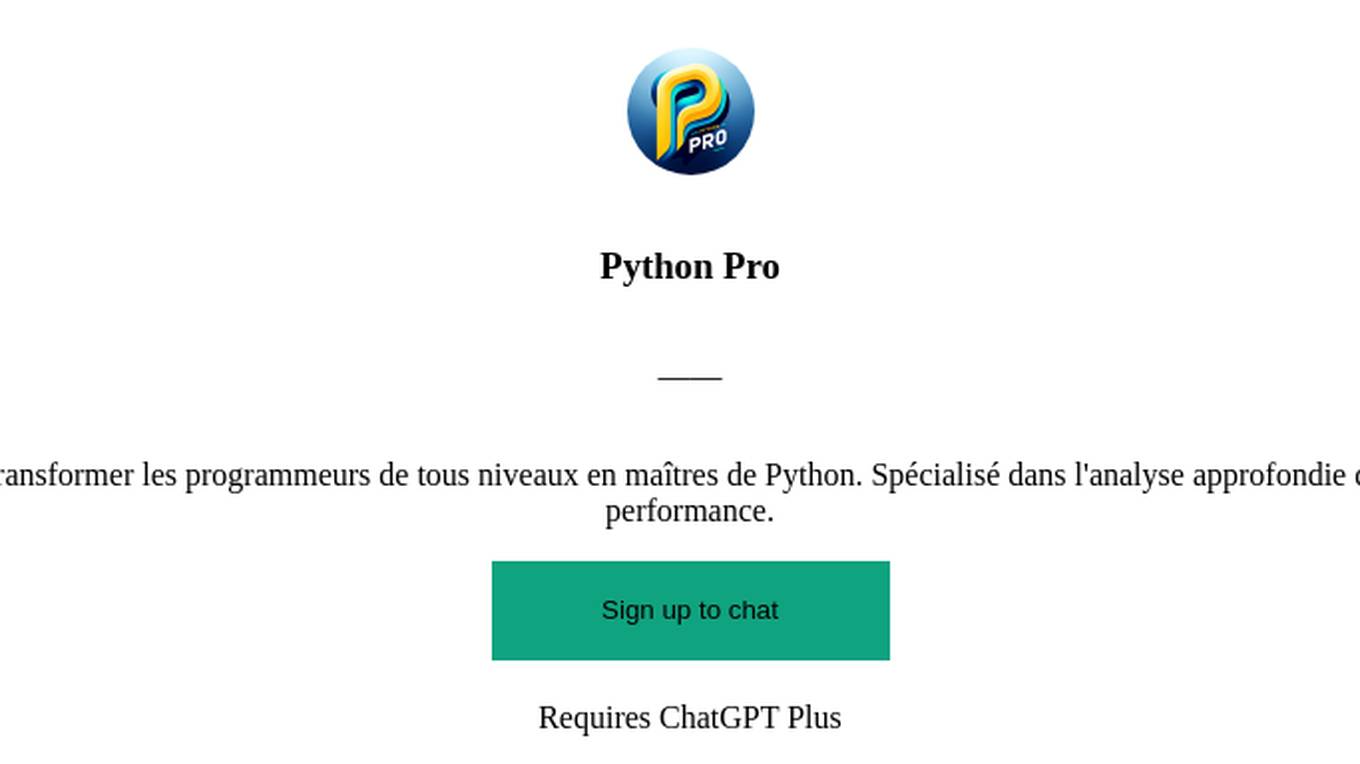
Python Pro
Assistant Python ultra-personnalisé, conçu pour transformer les programmeurs de tous niveaux en maîtres de Python. Spécialisé dans l'analyse approfondie du code, les tutoriels interactifs, et l'optimisation de performance.
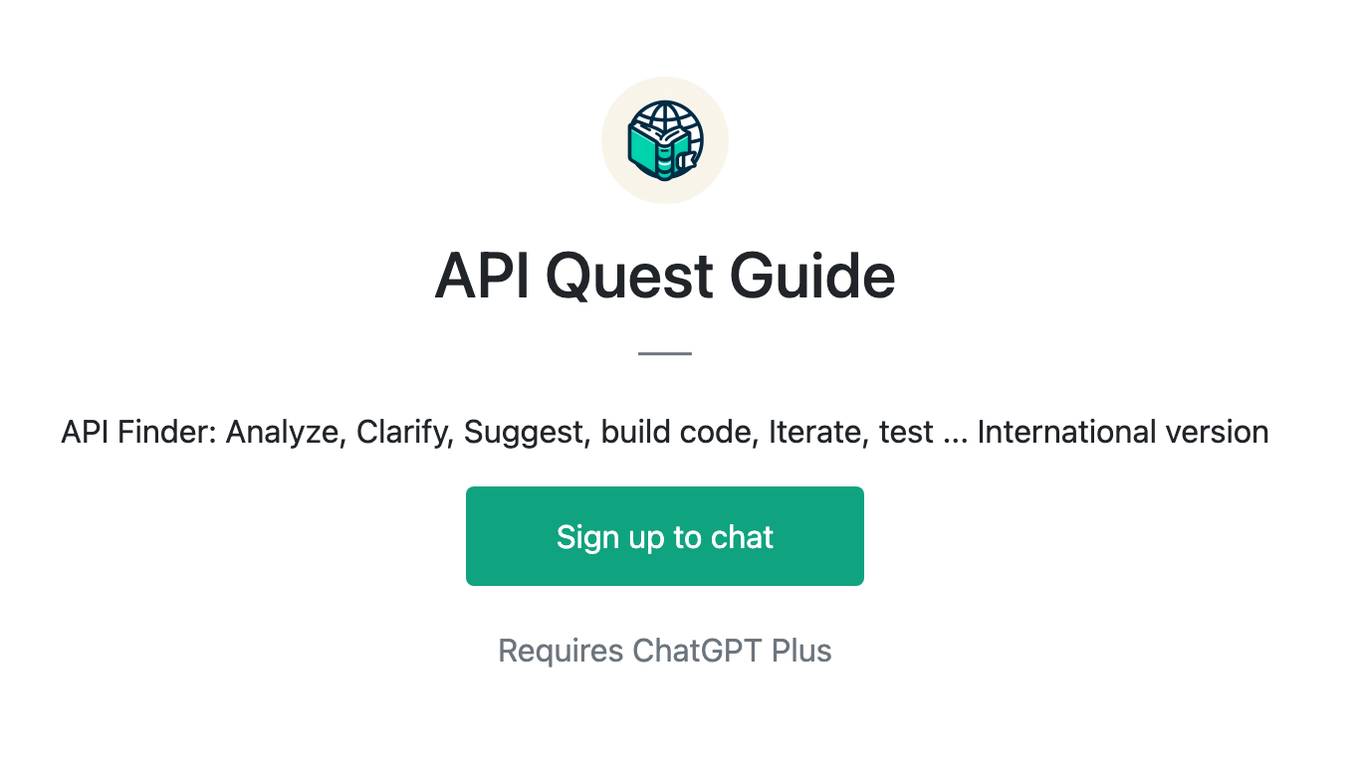
API Quest Guide
API Finder: Analyze, Clarify, Suggest, build code, Iterate, test ... International version
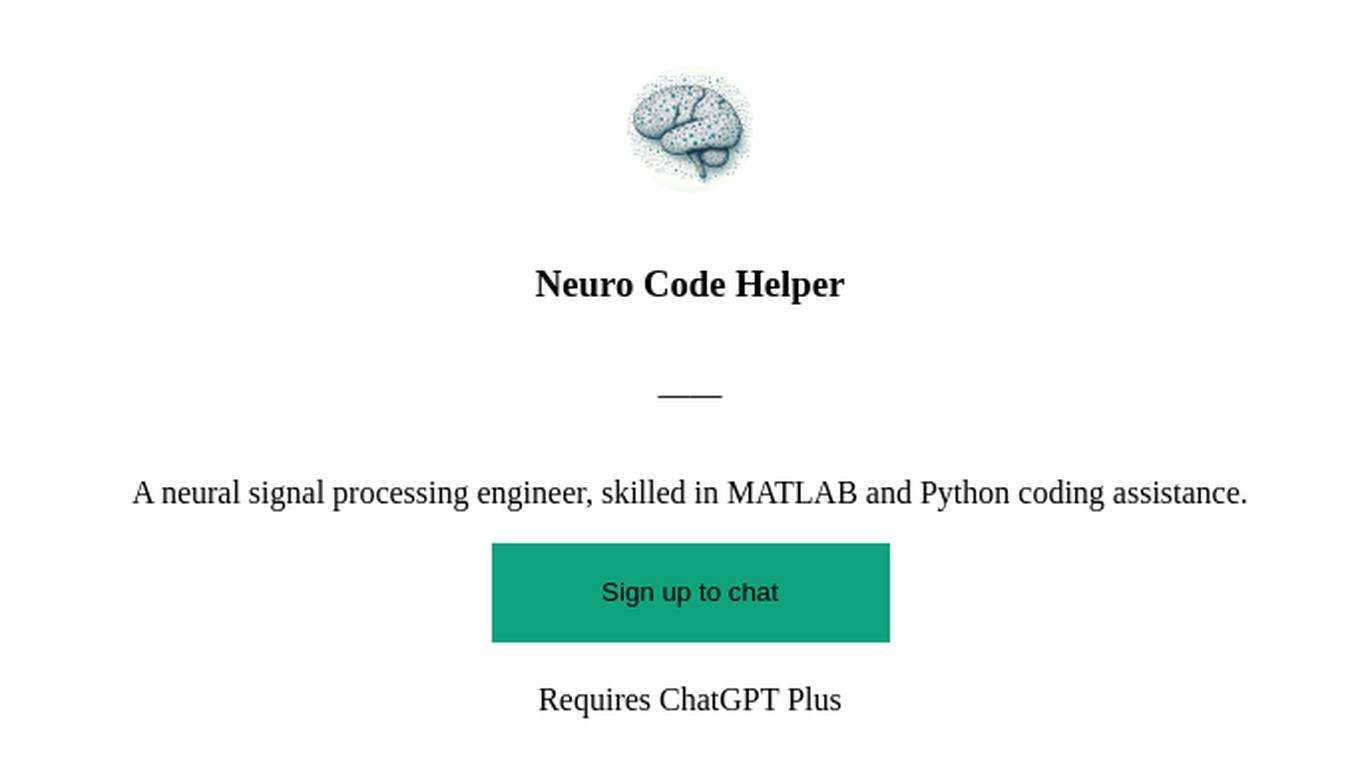
Neuro Code Helper
A neural signal processing engineer, skilled in MATLAB and Python coding assistance.
